Book Details Book Title: Ruthless Publisher: Concepcion Press Back Cover Copy: Seventeen-year-old assassin Cottia is desperate to leave behind the work she’s been forced into. Her lord offers freedom in exchange for one last hit. The assignment is to start a war by killing a target during the Giddelian prince’s betrothal selection ceremony. When the prince uncovers her identity, he offers her a new opportunity. Will his invitation grant her freedom from the notorious underlord? Audience: For teens 13+ Genre: Fantasy Release Date: Ruthless – March 14, 2024 InterviewBrock: How did you come up with the idea for this book or series? or What was your inspiration for writing this book or series? Candice: Ruthless was meant to be something I gave away to my newsletter subscribers, and it was supposed to be a short story. It didn’t turn out to be so short, and I’m only giving away the story to ARC (Advanced Review Copy) readers. Brock: Tell us about the main characters. Who are they, and what makes them unique? Candice: Cottia is an assassin who hates her life and wants to be free of her bonds. She makes a deal for her freedom that requires one last hit. She is Beatriz’s mom from my debut novel, Unbetrothed. Brock: Give us one fact about each main character that no one else knows. Candice: Cottia is very good with poisons and can’t shoot a bow and arrow for the life of her. Brock: In three sentences (or you can choose three words) what is this book about? Candice: An assassin who wants out. Brock: Do you outline the entire book before starting, or do you write as you go and let the characters take control of the story? Candice: I had written only a few chapters of this story years ago and plotted the rest using James Scott Bell plot points on an Excel spreadsheet. Brock: How do you believe this story relates to the lives of readers? Candice: I think many readers have felt trapped before by what people think of them and what is expected. Changing who you are isn’t easy and takes some major shifting in your life. In Cottia’s case, a prince with a weird dependance on this Ancient One changes her perspective with his integrity. Brock: What is your favorite genre to write for? Candice: I loved writing this high fantasy world. I get swept away once I am in the world. But I love writing contemporary fantasy even more. Brock: How many books are planned for this series? Candice: I have about five books planned in this series. All of them are novellas and they’re the backstory for Beatriz’s parents and Laude’s parents from Unbetrothed. Brock: How do you strike the right balance in your book? (Example Romance & Action, Fact & Fiction) Candice: I try to write what I love. I feel like I need to be swept away by the romance, action and mystery. If I can do that for myself, then I feel like I’ve done a decent job. Next, I ask other people because every author has blind spots. Brock: Are you working on the next book in the series? Candice: I wrote the next book in the series and I need to edit it. Brock: Can you give us a hint at the next book in the series? (If it’s a series) Candice: There is a love triangle and a deadly ending. It’s not who you expect and not in the manner I expected. Brock: What do you hope readers take away from the series? Candice: I hope readers take away that they are more valuable than the things of this world. In Beatriz’s world, gifts give people value. But Beatriz had value before and after she received her gift. Brock: What are your hopes for your future as an author? Candice: Honestly, I’ve been very discouraged lately with the whole publishing process. I have no idea where God is leading and I have no idea what it will look like. I can’t see myself not writing the stories in my head. Brock: Sorry, for your discouragement. I understand the desire to share the stories that swirl around in our minds. I think both traditional and self-publishing of titles has a place in the overall book strategy for each author! Thanks for your open and honest answers! Author Details Author Name: Candice Pedraza Yamnitz Author Bio: Candice Pedraza Yamnitz taught in a bilingual elementary classroom for years until she decided to stay-at-home and teach a crew of imaginative children. So in between reading lessons and converting cardboard boxes into pirate ships, she writes YA novels and chapter books with a Latin twist. She lives in her native Chicagoland. Author Website: http://candiceyamnitz.com Author Facebook: http://facebook.com/candiceyamnitz Author Instagram: http://instagram.com/candiceyamnitz Author TikTok: https://www.tiktok.com/@candiceyamnitz
0 Comments
Book Details Book Title: Dear Mouse Princess Publisher: Concepcion Press Back Cover Copy: Nine-year-old Veva hopes to find a friend. When she sees a sad mouse-princess blow the seeds off a wishing flower, Veva decides to be the princess’s best friend and writes the mouse a letter. Mouse Princes Iza does not want to be friends but will answer questions about her underground kingdom in exchange for chocolate. Veva and Mouse Princess Iza begin to make trades when trouble stirs in the underground mice world. Audience: Grade school kids 2nd through 4th grade Release Date: Dear Mouse Princess – December 2023 InterviewBrock: What was your inspiration for writing this book or series? Candice: When I was a little girl, I liked to pretend that there was a whole mouse society living in the bushes and under our houses. They had clothes and jobs like we did. They would let me drive them around on my bike. Yes, I was the weirdo girl talking to myself and stopping in front of neighbors’ yards to let the mice off the bike. Brock: Tell us about the main characters. Who are they, and what makes them unique? Candice: Veva is spunky and lonely. She wants a friend and decides the mouse she spies in her backyard will be her best friend. She has a brother she doesn’t appreciate because he plays weird imaginary games that she’s not that into. Brock: Give us one fact about each main character that no one else knows. Candice: I based Memo off my son. Veva is a mixture of people. Brock: In three sentences (or you can choose three words) what is this book about? Candice: Veva decides she’s going to be friends with a Mouse Princess she finds in her backyards and starts writing her letters. Things don’t go according to plan. Brock: Do you outline the entire book before starting, or do you write as you go and let the characters take control of the story? Candice: Dear Mouse Princess was written before I started plotting. This one went through many different versions. The characters ran the show. Brock: How do you believe this story relates to the lives of readers? Candice: I believe everyone has felt friendless at some point in their lives. This will help them feel seen and show them that their quirks are nothing to hide. Brock: What is your favorite genre to write for? Candice: Contemporary fantasy is my favorite to write. There is something about feeling like you can actually experience something fantastical. Brock: How many books are planned for this series? Candice: I have no plans either way with this one. It really depends on the readers’ responses. Brock: Any certain research required for the book, or is it all from your imagination? Candice: I did a lot of research on mice for this one. Mice don’t live very long and I guess cheese is not their favorite food. Brock: How do you hope parents will use this book with their kids? Candice: I hope for this to be a fun read to chat about friendships, anger, siblings, and handling conflict. Brock: What do you hope kids take away from this book or series? Candice: I hope they take away being kind, learning to share, and appreciating their siblings. Friendships are a hard thing to maneuver. Brock: Where do you like to write? Candice: I wrote Dear Mouse Princess at the dining room table one month in April. It was my favorite spot. Now, I write at my desk. Brock: Are you a full-time or part-time author/writer? Candice: I’m a full-time homeschooling mom and a part-time writer. Brock: How long does it usually take you to write a single book? Candice: It depends on the book. I can finish a chapter book in a week, a novella in a month, and a novel in two months. Brock: What do you hope readers take away from the series? Candice: I hope readers take away that they are more valuable than the things of this world. In Beatriz’s world, gifts give people value. But Beatriz had value before and after she received her gift. Brock: Thank you! Author Details Author Name: Candice Pedraza Yamnitz Author Bio: Candice Pedraza Yamnitz taught in a bilingual elementary classroom for years until she decided to stay-at-home and teach a crew of imaginative children. So in between reading lessons and converting cardboard boxes into pirate ships, she writes YA novels and chapter books with a Latin twist. She lives in her native Chicagoland. Author Website: http://candiceyamnitz.com Author Facebook: http://facebook.com/candiceyamnitz Author Instagram: http://instagram.com/candiceyamnitz Author TikTok: https://www.tiktok.com/@candiceyamnitz Book Details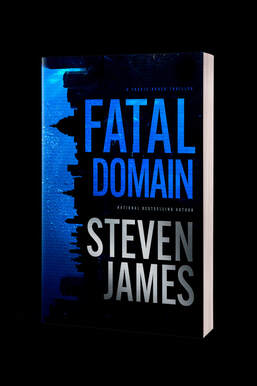 Book Title: Fatal Domain Series Title: “A Travis Brock Thriller” (It doesn’t really have a series name.) Publisher: Tyndale Back Cover Copy: Sometimes the greatest threat comes from the most intimate of betrayals While searching for a domestic terrorist, Travis Brock and his covert team discover a conspiracy with chilling implications. Even Brock’s eidetic memory might not be enough to unriddle their scheme in time as he realizes that when the past claws its way into the present it can leave deep scars. In a high-stakes story of action and intrigue, secrets are revealed, loyalties tested, and heartfelt lies are brought to light as Brock is forced to decide how to forgive what he cannot forget. From a novelist that Publishers Weekly has called a “master storyteller” comes an intricate and taut thriller that will keep you guessing until the final page. One Endorsement: Master storyteller Steven James shows his incredible ability to weave a compelling and fast-paced thrill ride in his latest book FATAL DOMAIN, the second book in his Travis Brock series. BROKER OF LIES was the first book in the series and introduced Travis Brock, a Department of Defense redactor. James is one of those rare authors that can combine complex and intense tension, while developing characters that will keep readers on the edge of their seats reading all night. When you put together a short list of authors that need to be on everyone's bookshelf, Steven James is one of those authors. If you’re looking for an intense, timely thriller full of intriguing twists and turns, FATAL DOMAIN delivers. We can’t wait to see the evolution of Travis Brock as the series continues and just how many more surprises James has in store for us all. —John Raab, publisher of Suspense Magazine Audience: Teen / adult fans of spy thrillers and domestic espionage Genre: Thriller (spy/espionage) Release Date: April 9, 2024 InterviewBrock: How did you come up with the idea for this book or series? Steven: I’ve always loved stories of intrigue and spy and espionage movies. I had finished a different series of thrillers and I wondered what it would be like to write a series about a redactor—the person who decides what needs to be kept from the public and what can be released. So, he is the one man who knows all of our Defense Department secrets. And what if he had a secret of his own? That led me to discover Travis Brock. In this follow up to BROKER OF LIES, Travis and his team have to stop a pharmaceutical firm conspiracy and track down a domestic terrorist before they’re able to use one of the military’s most guarded secrets against it. Brock: This is a great premise. And great character name by the way! Brock: Tell us about the main characters. Who are they, and what makes them unique? Steven: Travis Brock is a high-level Pentagon redactor. He has a nearly photographic memory, which allows him to do his job well, but hurts his personal relationships. After all—if you can remember every wrong done to you and that you’ve done to others, how do you build a meaningful relationship? Adira Halprin is a disavowed Homeland Security operative who has the skills of a highly trained spy and an unflappable, flirty nature that attracts Travis to her. Gunnar Bane is a former Ranger who is as tough as nails and, in his spare time when he’s not tracking terrorists, is writing a cringe-worthy romance novel that he thinks is actually pretty good. He’s a fun character who is quickly becoming a series favorite. Brock: Give us one fact about each main character that no one else knows. Steven: Hmm... I’m not sure. Most of what is important or interesting about each character is included in the book. I suppose I would say that Travis Brock emerged after I toured the Pentagon, Adira came to me when I heard a news story about operatives who try to sneak weapons through airport security to test it—and are more then 90% effective, and Gunnar Bane was originally going to be a stuntman for another novel and ended up finding his way into this series because of his uniqueness and, well, his cool name. Brock: Cool name in deed. Wow, I did not know about the testing our weaknesses at airport security. I always wondered if that security was effective or not. Brock: In three words what is this book about? Steven: Espionage. Betrayal. Intrigue. Brock: YES! Brock: Do you outline the entire book before starting, or do you write as you go and let the characters take control of the story? Steven: I am completely organic in the way that I approach my novels. I can’t even outline a scene—they always become too predictable when I try. I can’t imagine how boring it would be to write an outline and then spending a year filling in the blanks. Writing is a matter of discovery for me. Brock: I have never heard anyone explain it that way. When I try to outline, it becomes tedious work to write, but when I let me characters take control and reveal the story as I go, the story is always more exciting and engaging, of course it also becomes longer as I untangle unexpected threads. Brock: How do you believe this story relates to the lives of readers? Steven: Travis Brock struggles with forgiving what he cannot forget. This question of how to forgive others is one that I think all readers will be able to identify with on a personal level. Brock: What is your favorite genre to write for? Steven: Thrillers Brock: Any certain research required for the book, or is it all from your imagination? Steven: I had to do extensive research into Department of Defense and different aspects of the pharmaceutical industry to come up with the authentic details for this book. I toured the Pentagon, interviewed retired military personnel, scientists, psychiatrists, and many others. When I became an author I never expected that fiction that would require so much research—but I’ve found over the years that I enjoy it and it gives me an excuse to chat with some of the most interesting people you’ll ever meet. Brock: Yes the research clearly brings depth to your stories! I can"t say I enjoy it all the time though. Brock: If your book changed as you wrote it, how is it different than how you originally planned? Steven: My books always change dramatically as I work on them. I’ve never started a novel when I’ve known how it will end—but I always do come up with some thoughts as I write. It’s just that I’m usually wrong. It’s a process of brushing away my presuppositions and finding the authentic story waiting for me. Brock: I love this, "finding the authentic story waiting for me." Brock: How long does it usually take you to write a single book? Steven: I usually spend about a year on each book—although sometimes I’ve been able to shrink that down to 6-9 months if I just don’t take any time off :) I’m very particular about my stories—about the wording, the pace, the voice, the twists, etc. so I go through many revisions and iterations before I finally find the story that wants to be told in the way that it needs to be told. Brock: When did you realize you wanted to become a writer? Steven: I’ve alway loved making up stories—I was that kid who was always staring out the window daydreaming when I was in class. That being said, I never imagined I would become a writer. It’s just that eventually the stories had to find a way out and, thankfully, they found an audience of people who wanted to read them. Brock: What is the one author, living or dead, who you would co-write a book with and why? Steven: Honestly, I would not do well collaborating on a novel since I revise so many times. I would probably drive my co-author crazy. However, I did co-write a book on storytelling with a friend of mine--THE ART OF THE TALE—and we’re still friends, so I’m very thankful for that. Brock: What are your hopes for your future as an author? Steven: I’ve started work on a new trilogy and I have several other books scratching away at my attention trying to find a way out of my imagination and into the world. I’m hoping I’ll be able to write them. They are very intriguing ideas. I’d also like to work on a screenplay. I think it would be a good way to stretch myself as a storyteller. Brock: That's always the challenge, new stories waiting to be told, but finishing the ones we have before us. Brock: Soft shell or Hard Shell tacos? Steven: Oh, only soft shell, please. Do people really eat hard shell tacos? That’s troubling. Brock: Ha ha, I like to do both with some refried beans or sour cream between the two shells. I learned that back when I could eat Taco Bell as a teenager. You'd probably kill me off in one of your novels. Brock: Do you have a particular drink or food you consume when you write? Steven: Coffee. Black. I’m a bit boring. I heard one author answer this question, “Tequila, in Fruit Loops with the blood of my enemies.” That was the best answer I’ve ever heard to this question. Brock: That is quite the answer! Brock: Do you have a favorite Bible verse? Steven: “The Lord your God is with you. He is mighty to save. He will take great delight in you. He will quiet you with his love. He will rejoice over you with singing.” Zephaniah 3:17. It’s extraordinary to think that God loves me so much that when he thinks of me he breaks out in song. I have no idea how to even comprehend that. Brock: Do you listen to music while you write? Steven: I listen to a lot of EDM when I write. If I listen to music with words, I sometimes end up typing the words I’m hearing… Not helpful for meeting deadlines. Brock: What else do you want readers to know about your books, that I did not cover? Steven: I think that FATAL DOMAIN is one of my favorite novels that I’ve written over the last decade. It has everything that I like in a story—action, intrigue, twists, a touch of humor, and deep moral dilemmas that help me ask questions that matter. Brock: That is exciting, I look forward to reading the series! Thanks for the great interview! Author Details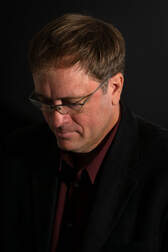 Author Name: Steven James Author Website: www.stevenjames.net Author Facebook: readstevenjames Author Twitter: readstevenjames Author Instagram: readstevenjames Author TikTok: readstevenjames Book Details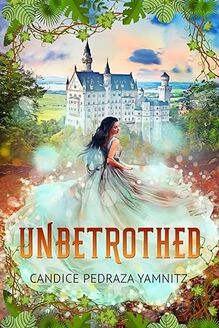 Book Title: Unbetrothed Publisher: Iron Stream Media Back Cover Copy: Around Agatha Sea, princesses are poised, magically gifted, and betrothed. So, when seventeen-year-old Princess Beatriz still fails to secure a betrothal, her parents hold a ball. Forming an alliance could mean the difference between peace and war, but Beatriz doesn't want just any suitor. She's in love with her best friend, Prince Lux. Marrying Prince Lux will always be a silly dream as long as she has no magical gift. Princess Beatriz will do whatever it takes to obtain a touch of magic, including making a deadly oath to go on a quest to Valle de Los Fantasmas. A valley where no one comes out alive. If she can manage to succeed, Princess Beatriz could have everything she desires and secure peace for her kingdom. If she fails, she'll lose not only her greatest dream but also her kingdom, and maybe even her own life. Endorsements: “Candice paints a colorful Latin fantasy in Unbetrothed. It’s a journey of change for a giftless princess and an enemy prince who must overcome their shortfalls and secrets if their countries hope to have a future. A definite read for fans of fantasy.” --Morgan L. Busse, award-winning author of the Ravenwood Saga and Skyworld series “It is overall a fun read for readers who like their fantasy mixed with a bit of romance.” –Kirkus Audience: Teens 13+ Genre: Fantasy Release Date: Unbetrothed- February 2022 InterviewBrock: How did you come up with the idea for this book or series? or What was your inspiration for writing this book or series? Candice: My inspiration came from leading a group of youth group girls and not finding the YA book I wanted to read. Brock: Tell us about the main characters. Who are they, and what makes them unique? Candice: My main character has a false belief that she needs extra powers to be special. She’s inadequate and compensates by treating others poorly. It’s something I’d see often in real life but not something I saw in books. This girl’s story needed to be told. Brock: Give us one fact about each main character that no one else knows. Candice: Beatriz’s looks are based off one of my cousins. Zichri’s name comes from the Bible. Blas was originally named Oz. Gonzalo’s name was Omar. The cast is very long so I am going to stop there. Brock: What is this book about? Candice: An inadequate princess makes a deadly oath to go on a quest for magical powers. Brock: Do you outline the entire book before starting, or do you write as you go and let the characters take control of the story? Candice: This story was my first novel I ever finished. I started just writing in January. Took a long break to write something else and returned to it in July. That entire July I stayed away until midnight enjoying my story. I had no idea where the story would lead. Brock: How do you believe this story relates to the lives of readers? Candice: I believe many people have been Beatriz in one way, shape, or form. Feelings of inadequacy can creep in and take over. Some people become people pleasers and others stomp all over people. Without God, it’s hard to keep the right perspective. Brock: What is your favorite genre to write for? Candice: I love historical and fantasy books. I much prefer writing fantasy books because of the endless possibilities. You make the rules and get to play with fun what ifs. What if God gave us super powers? What if we could fly? What if I could read people’s emotions and not just look for signs of them? Brock: How many books are planned for this series? Candice: I have no answer to this one. I wrote a sequel, but I also wrote a prequel so I can thoroughly know what happened to other characters in the story. Then, I wrote a novella so we could read about Beatriz’s mom and dad. Then I wrote a follow up to that one that gives more information. I planned out about three more novella’s in Beatriz’s mom’s series. I guess I will see what happens with publishers and sales. If people want the books, they will be released. Brock: Any certain research required for the book, or is it all from your imagination? Candice: I may write fantasy, but I do a crazy amount of research on small possibly insignificant details. How fast can a galleon travel and how long would it take to travel 300 miles in rainy weather? There’s also human anatomy for the fight scenes and research on food, dresses, and goblets. Yes, I have done research on goblets only to end up just using the word goblet with hardly any description. Brock: Why did you choose to focus on a male/female protagonist? (Select which is applicable.) Candice: I focus on females because I really enjoy diving deep into teen girl problems. I spent years mentoring youth group girls. Brock: If your book changed as you wrote it, how is it different than how you originally planned? Candice: The book had a different shape. I cut out at least five and half chapters and I added two chapters. Brock: Were any scenes or characters cut from the book? Can you give an example? (If you have an actual unreleased scene you would like to share, please attach it separately and label it with the book name) Candice: Beatriz had a scene where she interacted with another suitor. Originally, we didn’t have the chupalama in the story, but there was another big cat attack on the road. Brock: Where do you like to write? Candice: I wrote Unbetrothed at the dining room table after everyone went to bed. It was my favorite spot. Now, I write at my desk. Brock: Are you a full-time or part-time author/writer? Candice: I’m a full-time homeschooling mom and a part-time writer. Brock: How long does it usually take you to write a single book? Candice: It depends on the book. I can finish a chapter book in a week, a novella in a month, and a novel in two months. Brock: What do you hope readers take away from the series? Candice: I hope readers take away that they are more valuable than the things of this world. In Beatriz’s world, gifts give people value. But Beatriz had value before and after she received her gift. Brock: What was your favorite book as a teen or child? Candice: I didn’t like reading until I was sixteen years old. I became a Christian, and I went through a period where I gobbled up the Bible. I had no idea what Christians did on their free time and decided they couldn’t just read the Bible, so I started reading Lord of the Rings. I fell in love with novel reading. Brock: What is the one author, living or dead, who you would co-write a book with and why? Candice: I am cowriting a book with some friends from my Christian Mommy Writing group. I wouldn’t change it. I love daydreaming with them. Brock: Coke or Pepsi? Candice: Neither. I don’t drink pop. Brock: Soft shell or Hard Shell tacos? Candice: I’m Mexican. We eat soft Shell and have flat fried tortillas. Brock: Favorite place to vacation? Candice: I’m not much of a vacationer. I like to visit my family in Puerto Rico and Mexico. Brock: Favorite season? Candice: Give me the early fall weather when all the trees look like they’re on fire. Brock: Do you have a particular drink or food you consume when you write? Like hot chocolate, raspberry tea, cheese balls, animal crackers, etc? Candice: I love drinking a milky coffee when I write in the morning. Brock: Do you have a favorite Bible verse? Candice: I have my jams. Give me the Lamentations 3:22-34. Psalm 139. Psalm 40, and all of James. Brock: Thanks Candice for the great interview! Author Details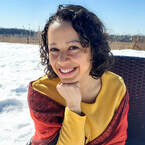 Author Name: Candice Pedraza Yamnitz Author Bio: Candice Pedraza Yamnitz taught in a bilingual elementary classroom for years until she decided to stay-at-home and teach a crew of imaginative children. So in between reading lessons and converting cardboard boxes into pirate ships, she writes YA novels and chapter books with a Latin twist. She lives in her native Chicagoland. Author Website: http://candiceyamnitz.com Author Facebook: http://facebook.com/candiceyamnitz Author Instagram: http://instagram.com/candiceyamnitz Author TikTok: https://www.tiktok.com/@candiceyamnitz Book Details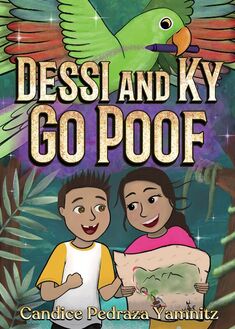 Book Title: Dessi and Ky Go Poof Publisher: Concepcion Press Back Cover Copy: On a blustery and wet May day in Chicago, Dessi and Ky get transported to a tropical island where wicked pirates have turned the islanders into birds. Now it’s up to them to work together, defeat the pirates, locate a treasure, and find their way home again—with a little help from a magical crayon. Endorsements: "Fans of the Magic Treehouse have found their next grand adventure, this one in even bigger proportions...Parents will appreciate the beautiful values on display such as apologizing, uplifting different creative ideas, and controlling one's outlook in less-than-ideal situations. What a fun ride!" - Hope Bolinger, author of 25+ books, including The Cassandra Curse "Dessi and Ky Go Poof reminded me of a Magic Tree House adventure intertwined with the magic of Harold and the Purple Crayon. Yamnitz brought in elements kids this age love-pirates, dinosaurs, and sports-and a family dynamic kids understand. References to Mexican foods and traditions makes the story appealing for a diverse audience of readers. I enjoyed this fun story. - Lori Z. Scott, bestselling author of the Meghan Rose series "Dessi and Ky Go Poof sweeps readers into a fun, fantastical, and light-hearted swashbuckler. Candice Yamnitz obviously knows and loves her readers well and offers them a safe passage into adventure! - Amanda Cleary Eastep, author of the Tree Street Kids series Harold and the Purple Crayon meets Dora the Explorer in Candice Pedraza Yamnitz’s Dessi and Ky Go Poof, the first book in a new fantasy series for young children. Dessi and Ky accidentally travel to a magical island where a parrot needs their help to regain his human form. The book shows common conflicts between siblings and how to work through them. Children learn to apply parental advice in this imaginative story whose simple prose keeps young readers engaged. --Lorehaven Audience: Grade school kids 2nd through 4th grade Release Date: Dessi and Ky Go Poof – May 2023 InterviewBrock: What was your inspiration for writing this book or series? Candice: It was Covid, I was pregnant, and I was daydreaming a story for my kids. Brock: Tell us about the main characters. Who are they, and what makes them unique? Candice: Dessi is a spunky little girl who likes to have control of her environment but can’t control circumstances. Ky is a creative little brother who takes joy in playing pranks on his sister yet loves her fiercely. Brock: Give us one fact about each main character that no one else knows. Candice: Dessi loves dinosaurs but hates spiders. Ky follows in Dessi’s lead and originally was written with a speech delay. The problem was that it’s really difficult to convey a conversation or scene with so many speech impediments. My first readers were confused. Brock: What is this book about? Candice: A sister-brother duo get whisked from their Chicago home by a crayon-wielding parrot to an island where pirates turn people into birds. Brock: Do you outline the entire book before starting, or do you write as you go and let the characters take control of the story? Candice: I didn’t outline this one but since then I’ve become an outliner. Brock: How do you believe this story relates to the lives of readers? Candice: Brothers and sisters fight. I wanted my children to see themselves in the story but also to see themselves overcoming their problems in a fun way. Brock: What is your favorite genre to write for? Candice: I love portal fantasy because it feels real and we’re experiencing the brave new world with the characters. Brock: How many books are planned for this series? Candice: I planned out at least three books. Honestly, I’ve gotten great feedback and worked on the second book for a year, trying to make it work. I didn’t love the book so I scrapped it. I have another one started and if my self-doubt or my YA work doesn’t get in the way, I’ll finish soon. Brock: Any certain research required for the book, or is it all from your imagination? Candice: I watched a lot of parrot videos to describe my parrot properly. Brock: Are you working on the next book in the series? Candice: I have the next book outlined and some of it written. I have a book launch so after that is done, I plan to get back to this one. Brock: Can you give us a hint at the next book in the series? (If it’s a series) Candice: The little brother plays a big role in what transpires. Brock: How do you hope parents will use this book with their kids? Candice: I’d love for this to be a fun read aloud for a class or something fun to read to all the grade school to late preschool kids. Brock: What do you hope kids take away from this book or series? Candice: I hope they learn to love stories and learn to appreciate their siblings. Brock: Where do you like to write? Candice: I wrote Dessi and Ky Go Poof at the dining room table after everyone went to bed. It was my favorite spot. Now, I write at my desk. Brock: Are you a full-time or part-time author/writer? Candice: I’m a full-time homeschooling mom and a part-time writer. Brock: How long does it usually take you to write a single book? Candice: It depends on the book. I can finish a chapter book in a week, a novella in a month, and a novel in two months. Brock: What do you hope readers take away from the series? Candice: I hope readers take away that they are more valuable than the things of this world. In Beatriz’s world, gifts give people value. But Beatriz had value before and after she received her gift. Brock: Thanks for the wonderful interview! Author Details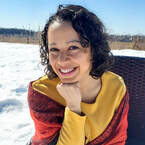 Author Name: Candice Pedraza Yamnitz Author Bio: Candice Pedraza Yamnitz taught in a bilingual elementary classroom for years until she decided to stay-at-home and teach a crew of imaginative children. So in between reading lessons and converting cardboard boxes into pirate ships, she writes YA novels and chapter books with a Latin twist. She lives in her native Chicagoland. Author Website: http://candiceyamnitz.com Author Facebook: http://facebook.com/candiceyamnitz Author Instagram: http://instagram.com/candiceyamnitz Author TikTok: https://www.tiktok.com/@candiceyamnitz Book & Series DetailsBook Title: The Empowered Ones Series Title: The Hollis Timewire Series Publisher: Acorn Publishing Back Cover Copy: Hollis Timewire never wanted to be a hero. But when Arthur Evandrum, the leader of the Pure Ones, forces her to use her incredible power to control and imprison citizens, Hollis has no choice but to fight back. As she struggles to resist Arthur's coercion and grapples with the responsibility of being a leader, Hollis discovers there is more at stake than her own freedom. Mysterious events are unfolding at the lab in Area 7, and she must uncover what they are before it's too late. With the help of her closest allies, Hollis races against time to unearth what’s happening behind the scenes. As she delves deeper into Arthur's twisted vision for the future, Hollis’s own morality is called into question. Will she make the ultimate sacrifice to protect what she believes in? Or will she succumb to Arthur's power and become another pawn in his game? The fate of society rests in her hands. Endorsement: "To say this book wrecked me is a severe understatement. Harrington stabbed my heart, twisted the knife, pulled it out, then tore it to SHREDS. She took my expectations, raised them, and still exceeded them. This story was everything I hoped it would be. And the ending had me sobbing more than any book I've ever read." SOPHIA ERVIN, Superfan of The Hollis Timewire Series Audience: Young Adult Genre: Dystopian Release Date: 3/15/24 InterviewBrock: What was your inspiration for writing this book or series? Danielle: I was a big fan of The Hunger Games and The Giver growing up. Those books got me into reading, and I wanted to write something that felt just as fast paced and exciting. I also was a big fan of the TV show Heroes, and that inspired some of the superpowers in the Hollis Timewire Series. Brock: Tell us about the main characters. Who are they, and what makes them unique? Danielle: My main character, Hollis Timewire, is unique in two regards. One, because of her superpower. She is a puppet master. She can control people. And her power develops heavily over the course of the series. And two, because she starts off as a brainwashed teenager who doesn’t know how to think for herself and feel emotions (emotions are forbidden in society) and she turns into a fearless leader who stands against injustice and does what is right. Her growth over the 4 books is astronomical. She learns from her mistakes and turns into someone readers can truly root for. Another prominent main character is Jonah Luxent. He is Hollis’s ability teacher. His kindness and compassion carries through the series. He stands up for Hollis even when no one else will, and he is the father figure she so desperately needs. His power is to take on another person’s power (hence why is the ability teacher). Brock: Give us one fact about each main character that no one else knows. Danielle: Hollis’s favorite color is teal (and so is mine). Jonah loves to read. And he loves to learn about new abilities. He studies abilities, developing theories about them & how they mature over time. Brock: In three sentences (or you can choose three words) what is this book about? Danielle: My series is about a futuristic society that tests its citizens’ blood to find and eliminate people with superpowers. There are four books: The Diseased Ones, The Unseen Ones, The Pure Ones, & The Empowered Ones Brock: Do you outline the entire book before starting, or do you write as you go and let the characters take control of the story? Danielle:With The Diseased Ones (Book 1) I absolutely did not outline. I just wrote and was like, “we’ll see where it goes.” As the series developed, I planned more and more. When I reached The Empowered Ones (Book 4), I had a detailed outline. Mainly because outlining is my style now, but also because I was wrapping up a whole series and there was a lot to cover. Brock: How do you believe this story relates to the lives of readers? Danielle: I think we all can relate to wanting injustice to end. In my series, people are discriminated against for a biomarker in their blood (one that gives them powers). There is still a lot of hate in this world, and I hope my readers can relate to Hollis’s struggle to fight for her own freedom as well as for a free world. Brock: What is your favorite genre to write for? Danielle: I enjoy dystopian and fantasy! Brock: What is the biblical background or basis for the series ? Danielle: Jonah Luxent is my Christ figure in a few scenes throughout the series. He takes responsibility for Hollis’s poor actions and speaks on her behalf when people accuse her. But more than that, I think overall, it’s that second chances can happen and people can change. It is never too late to make new choices. Brock: How many books are planned for this series? Danielle: This is a 4 book series. The Diseased Ones, The Unseen Ones, The Pure Ones, The Empowered Ones. Brock: Any certain research required for the book, or is it all from your imagination? Danielle: The only heavy research I had to do was for Book 4 (The Empowered Ones) & I had to learn how to talk to air traffic control. Brock: Do you plot or outline the entire series before you begin writing, or do your books take on lives of their own? Or is there a combination? Danielle: I plot big things, and little things come as I write. I’m usually two or three chapters out in my mind in terms of a more detailed outline as I’m drafting, and I know the big moments far in the future of a book, but things still constantly surprise me when I draft a book. And that’s what I love about storytelling! The characters sometimes take over, and it’s great fun to witness! Brock: Are you a full-time or part-time author/writer? Danielle: I am a full-time writer. I am currently drafting my 5th book overall. It is an NA Fantasy called Keyholder. I try to get in words every day. My current drafting pace is anywhere from 1000 to 2000 words a day while I’m actively drafting a book. My goal is write & release a book a year. Brock: How long does it usually take you to write a single book? Danielle: The Empowered Ones took me 8 months to draft (it ended up being 142k). Keyholder (my newest book, not part of The Hollis Timewire Series) is probably going to take 3 months to draft (and it will also be around 140k). But I’m moving at a much more aggressive pace with Keyholder because I’m actively working toward writing and releasing a book a year since going full-time with this author gig. Brock: What are your hopes for your future as an author? Danielle: I hope to make a sustainable income off book sales. I’m not there yet, but the more books I have out, the more sustainable of an income this will become. I would love to keep publishing books my whole life. Brock: Coke or Pepsi? Danielle: Coke Brock: Soft shell or Hard Shell tacos? Danielle: Hard Shell Brock: Favorite season? Danielle: Fall Brock: Do you have a favorite Bible verse? Danielle: Psalm 23 Brock: Do you listen to music while you write? If so what are some examples? Danielle: I like to listen to epic movie soundtracks when I write fight scenes or big climax scenes. Like Narnia, Harry Potter, LOTR, etc… Brock: What else do you want readers to know about your books, that I did not cover? Danielle: I shared the blurb and cover for my last book in the series, but I attached all four book covers for the series. Here is the blurb for The Diseased Ones (Book 1): Life is easy in 2647, unless you're a Diseased One... On the morning of her 16th birthday, Hollis Timewire receives the worst possible news. She can't become a citizen of the world. She's a Diseased One. Born with a biomarker that bestows dangerous, brain-altering powers, Hollis is forced to hide underground with other Diseased Ones, who believe that the government falsified history to cover up their genocide. Now Hollis must discover the truth, and is willing to risk anything, including her powers, to go back home. Brock: Thank you Danielle, what an excellent interview. Thank you for all your insight! Author DetailsBook Details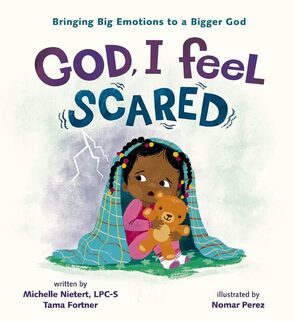 Book Title: God, I Feel Scared Series Title: God, I Feel Publisher: Zonderkidz Back Cover Copy: Kids have big feelings, but none of their feelings are too big for God. Through kid-friendly text and bright illustrations, children can safely explore what it means to feel scared, discover ways to process their emotions, and learn that being afraid is something they can face, especially with the help of God and those around them. Audience: Children ages 4 to 8 Genre: Picture Book Release Date: October 3, 2023 InterviewBrock: What was your inspiration for writing this book or series? Tama: The idea for this series actually originated with Michelle. As a licensed counselor, she saw the ever-deepening need for kids to have a way to process their emotions. While there are secular books about this and faith-based books about this, none combined the two—a practical approach to managing emotions that pointed kids to God as the primary healer. When she approached me to be the co-author on the project, it was an instant “Yes!” Brock: Tell us about the main characters. Who are they, and what makes them unique? Tama: Because this is more of an education book than a storybook, I suppose the main character is actually the child reading the book (or having it read to them). And God has made every child wonderfully unique! In God, I Feel Scared—and its companion book, God, I Feel Sad—the reader learns to explore how they feel and process their emotions in healthy ways. Brock: I love that, the main character being the child reading the book. What is something unique readers experience when reading this book? Tama: I think one of the things that most surprises the grownups reading this book to their child is how much they themselves learn from it. Brock: It is amazing, how often the stories I read with my kids, have moments for me the parent as well. In three sentences what is this book about? Tama: While scared is a feeling that can be hard to face, if we listen to it, we can learn from it. Scared isn’t an emotion kids have to avoid; rather, it is something they can use to better understand themselves and grow closer to God. The included practical tips and techniques help young children learn to process their feelings in healthy ways while turning to God in the process. Brock: Do you outline the entire book before starting, or do you write as you go and let the characters take control of the story? Tama: I’m definitely an outliner! I need to see where the book is going and how I’m going to get there. That doesn’t stop it from taking an unexpected detour now and then, though. Brock: Oh the unexpected detour, a fun way to learn more about your characters, or dive into a moment of inspiration. How do you believe this story relates to the lives of readers? Tama: We all experience fears, regardless of our age. God, I Feel Scared not only offers tools to manage those fears, but it also reminds us (including this writer!) that God is always with us, ready to comfort, strengthen, and carry us through whatever comes our way. Brock: I like how you include, you the author. How often do I write a book that I need myself, or about something I am experiencing with my kids, and the book is my way to work it out. What is your favorite genre to write for? Tama: Whatever I’m writing at the moment! Right now, I’m working on a new genre for me—an early chapter book and completely fictional. After having written so many nonfiction and science-based books, I am loving the chance to let my imagination run wild! Brock: My favorite answer yet! Variety is such a fun way to explore our imaginations, and also be open to where God leads us. Please let me know when your chapter book series gets published! What is the biblical background or basis for the series? Tama: Both Michelle and I firmly believe that everything in life should be rooted in God, including—or perhaps especially—the emotions we feel. When you dive into the Bible, God speaks so often about our emotions. It’s His words that shaped the guidance offered in the book. Brock: Amen. How many books are planned for this series? Tama: Michelle and I do have plans for more books in the series. Some would explore more of the “negative” emotions that kids struggle with, and some would dive into the more joyful and “positive” ones. Brock: I'm glad to hear you will continue to expand this seires. My wife is a school counselor and working on her masters degree right now. Resources like this will go along way to change how we view mental health for kids, and strengthen their foundations and emotional wellness. Any certain research required for the book, or is it all from your imagination? Tama: As a licensed counselor, Michelle is my source for all the information. In an interesting twist, these books began with her relaxing on my couch while I sat in a chair and asked her all sorts of questions and took furious notes. Brock: Are you working on the next book in the series? Tama: I am always working on the next book in the series—even if it’s only in my thoughts. Brock: How do you hope parents will use this book with their kids? Tama: Our goal for the God, I Feel series is that parents and children will sit down together to read and talk through the pages before these big emotions hit their lives. Then, they (both the children and the parents) will have the tools they need to better process those feelings when they do come. Brock: What do you hope kids take away from this book or series? Tama: More than anything we want kids to know that “God’s love and protection are everywhere and all around you . . . even when you’re feeling scared” or sad or lonely. Brock: That's such a powerful takeaway for kids. Switching gears a bit, let's talk about you as a writer. Where do you like to write? Tama: I have an office in my home that is my favorite place to write. It’s lined with wall-to-wall bookshelves and has a window looking out at the trees. It’s very peaceful—except when the mailman comes by and my puppy loses his mind. Brock: Sounds wonderful, the space, the setting, maybe not the puppy. Ha ha. Are you a full-time or part-time author/writer? Tama: I am a full-time writer, though much of my writing is collaborating with or ghostwriting for others. I consider that my day job, while projects such as the God, I Feel series are my fun writing. Brock: How long does it usually take you to write a single book? Tama: That depends on the genre—and the publisher’s deadline! Picture books usually take about a month as I edit, edit, edit about 3,123 times. My longer books for both children and adults usually take about three months. Brock: Edit, edit, edit! When do you know you are finished with the book? Tama: When the words sing and reading them makes me smile. Brock: When did you realize you wanted to become a writer? Tama: When I was about eight years old, I read Little Women for the first time and discovered Jo March, and a whole new world of possibilities was opened for me. I had always loved reading books, but until that moment, I don’t think I realized that there were people who actually wrote them—and that perhaps I could be one of them! I even went to far as to set up my own little cardboard writing desk in my childhood bedroom closet, imagining that I was just like Jo tucked away in her attic writing retreat. Brock: What are your hopes for your future as an author? Tama: One of my “bucket list” items as an author is to have a hardcover, jacketed picture book on the shelves of bookstores and libraries. One with my picture on the jacket flap—not because I’m terribly vain, but because that is one of the hallmarks of a “real writer” for me. LOL. And it looks like that hope might be coming true as I’ve just signed a contract with Zonderkidz for just such a book! Brock: Congrats Tamara! That is awesome. I understand the milestone that is and the meaning behind it! In what ways does your faith impact how you approach writing? Tama: Everything begins and ends with God. Everything. Every word is prayed over, every book is prayed over, my readers are prayed over. Lord, fill my mind, my mouth, my fingers with Your words. And send these books where You would have them to go. Brock: Lighting round and a bit silly! Coke or Pepsi? Tama: Coke (but actually Dr. Pepper) Brock: Soft shell or Hard Shell tacos? Tama: Soft shell. I have not acquired the adulting skills necessary to eat a hard-shell taco without wearing it. Brock: Favorite place to vacation? Tama: Anywhere with my family. (Most anywhere. Let’s not get crazy.) Brock: Favorite season? Tama: Spring Brock: Do you have a particular drink or food you consume when you write? Like hot chocolate, raspberry tea, cheese balls, animal crackers, etc? Tama: Usually just water with lemon. But if I’m desperately chasing a deadline and struggling to stay awake, then I pull out the Dr. Pepper and Cheetos. Brock: Do you have a favorite Bible verse? Tama: Psalm 18:19 — He brought me out into a spacious place; he rescued me because he delighted in me. (NIV) Brock: Do you listen to music while you write? If so what are some examples? Tama: I need music to write, but only instrumental will do. It can’t have words, or even be an instrumental version of a “worded” song—or I’ll find myself typing out the lyrics instead of my story! Apple music has a Relaxing Piano playlist that is my fav. Brock: What's the most surprising thing you learned while writing your books? Tama: Perhaps this sounds a bit silly, but even after all the books I’ve written, it still is the most wonderful little shock and surprise to realize that people actually want to read these words I write. I’m not sure I’ll ever get over that—and perhaps it’s best for me and my writing if I don’t. So, dear readers, thank you!!! Brock: I love that! Thanks Tamara!
Author Details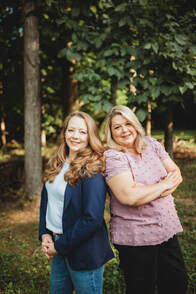 Author Names: Tama Fortner & Michelle Nietert, illustrator Nomar Perez Author Website: www.TamaFortner.com & YourMentalHealthCoach.com Author Facebook: https://www.facebook.com/TamaFortnerBooks/ https://www.facebook.com/mrs2003 Author Twitter: https://x.com/tamafortner Author Instagram: https://www.instagram.com/tamafortnerbooks/ https://www.instagram.com/michellenietert/ Author Pinterest: https://www.pinterest.com/tamafortnerbooks/ Book DetailsBook Title: Of Fire and Ash (Bk 1) & Of Sea and Smoke (Bk 2) Series Title: The Fireborn Epic Publisher: Enclave Escape Back Cover Copy: Of Fire and Ash (Book 1) She rides a fireborn, a steed of fire and ash, trained for destruction. Ceridwen tal Desmond dreams of ruling like her father over the nation of Soldonia, where warriors ride to battle on magical steeds—soaring on storm winds, vanishing in shadow, quaking the earth, and summoning the sea. After a tragic accident claims her twin brother, she is exiled and sworn to atonement by spending her life—or death—for her people. But when invaders spill onto Soldonia’s shores and traitors seize upon the chaos to murder her father, Ceridwen claims the crown to keep the nation from splintering. Combatting overwhelming odds and looming civil war, she begins to wonder if the greatest threat to the kingdom may, in fact, be her. With fire before her and ash in her wake, how can she hope to unite instead of destroy? Flames rage and oceans rise in this explosive first installment of The Fireborn Epic as the exiled heir, a novice priest, and a reluctant rebel wage war against a hidden power that threatens to shake the world. Of Sea and Smoke (Book 2) He rides a seablood, a steed of salt and spray, born to challenge the tides. Six years ago, the wrong brother survived, and nothing will ever convince Rafi Tetrani otherwise. But he is done running from his past, and from the truth. As civil war threatens Ceridwen’s tenuous rule in Soldonia, Rafi vows to fight the usurper sitting on the imperial throne of Nadaar, even if it means shouldering his brother’s responsibilities as the empire’s lost heir. The stolen shipload of magical warhorses offers just the edge he needs. But the steeds have been demanded in ransom by the emperor’s ruthless assassin, and if Rafi hopes to raise a band of riders, he must first outwit his brother’s murderer. Yet when his best efforts end in disaster, and an audacious raid sparks an empire-wide manhunt, even forging an unexpected alliance might not be enough to help Rafi turn the tides, let alone outrace the wave of destruction intent on sweeping them all away. Seas boil and jungles burn in this tempestuous second installment of The Fireborn Epic as the outcast queen, captive missionary, and royal rebel strive to unearth the mysterious power that hungers for their world. One Endorsement: “Wow. If you’re looking for the epic fantasy of your dreams, this. is. it. Simply put, Of Fire and Ash is a masterpiece.” --Nadine Brandes, award-winning author of Romanov, Fawkes, and the Out of Time Series Audience: YA Genre: Epic Fantasy Release Date: Of Fire and Ash - Dec 7 2021 Of Sea and Smoke - November 21, 2023 InterviewBrock: How did you come up with the idea for The Fireborn Epic? or What was your inspiration for writing this series? Gillian: I came up with the idea for a world with magical breeds of warhorses—horses who can breathe fire, vanish into shadows, ride the stormwinds, etc.—years ago while managing the horse program at a summer camp. Back then, my job meant that I spent every day in the saddle, teaching kids how to ride. The idea of creating a fantasy world that reflected my world of creaking saddles, long days on horseback, and the unique bond you can build with your horse just lit up my imagination. It took me a while to find the right story to weave into that world, but when I finally did, it was one that brought together so many of the things I love: epic fantasy, fantastic creatures, vivid settings, intense battle sequences, and fierce warriors who just don’t give up. Now we’re two books into the series--Of Fire and Ash and Of Sea and Smoke are both out—and I love the world just as much as when I first had the idea! Brock: I love the inspiration behind how you came to create the world. Tell us about the main characters. Who are they, and what makes them unique? Gillian: The Fireborn Epic has three main characters, and it alternates between all of their storylines: Ceridwen, Rafi, and Jakim. Ceridwen is the female character I wanted to read about as a teen. She’s a warrior, raised alongside her twin brother as a potential heir to her father’s kingdom, and she rides a firebreathing horse. When the story begins, she’s been exiled by her father after a tragic accident and she’s now serving the kingdom by patrolling the borders, when she stumbles across an enemy invasion and is the only one who can carry the warning home. But returning means breaking her exile, a crime punishable by death. She is fierce, stubborn, and has to wrestle sometimes with what’s really driving her as she seeks to protect the kingdom that has seemingly turned its back on her. Rafi is one of my favorite characters. When we meet him, he’s been on the run for a couple years from the secrets in his past and is hiding under a different identity with a fishing tribe. He’s got this fantastically quirky sense of humor—definitely a deflection method—and when he’s not cracking jokes, he’s busy trying to convince himself that he doesn’t actually care wholeheartedly about the people around him. Because caring means you have something to lose. Jakim enters the story as a novice priest in an order that’s dedicated to preserving the holy writ (their form of Scripture) by inking it onto their skin. Every decade, they send a mission to the ruins of their ancient City to try and recover missing sections, and Jakim is determined to earn a spot on that mission. Even if it means lying to get it. I’d really been struggling with figuring out what Jakim’s story was going to be until I stumbled across that core paradox—this novice priest telling a blatant lie—and once I discovered that, it opened up a really cool story of personal growth for him. Without giving too many spoilers, I can say that the lie doesn’t turn out quite as he hoped. Brock: Characters can be tricky, but the development process creates depths and familiarity that can drive the story forward. Give us one fact about each main character that no one else knows. Gillian: One fact that even readers wouldn’t know? Hmm. That’s tough. I can tell you facts about how each character changed during the brainstorming process. Ceridwen was originally named Gwen and the very first version of her story (from a long time ago) was set in a fantasy Scotland without any magical warhorses. Rafi was originally named Ronan and completely lacked his characteristic sense of humor. It’s hard to imagine that original version of his character! Jakim replaced a side character who was a middle aged warrior priest, and the original inspiration for his story came while I was creating a drama script on the life of Joseph from the Old Testament. Brock: In three sentences what is this series about? Gillian: Magical warhorses. Defying the odds. Discovering we don’t have to face the battle alone. Going more in-depth, it’s a YA epic fantasy where warriors bond magical warhorses and an outcast queen, royal rebel, and captive priest lead a desperate resistance against an empire bent on conquest and its power-mad assassin. Brock: Three sentences is never really enough to capture the story of an epic novel or series. Do you outline the entire book before starting, or do you write as you go and let the characters take control of the story? Gillian: My writing process is usually a bit of a mix of the two, though interestingly enough, it’s been a bit different for each book in the series so far. I outlined the first book fairly extensively, then wound up having to discovery write my way throughout the entire second book, and now the third book seems to be a pretty even mix of the two, weighted slightly more heavily towards outlining. Generally, I want to have a broad view of where the story is headed and where the character’s growth journeys are taking them, and then I tend to discovery write my way from plot point to plot point, letting the characters’ emotions guide their steps forward. Brock: How do you believe this story relates to the lives of readers? Gillian: I think people can tend to view epic fantasy as purely escapist or as being so far out there that it doesn’t relate to real life. Most of us will never have to face down an enemy army on our firebreathing warhorse. But I think the thing that helps ground epic fantasy is when the personal or emotional struggles the characters are facing are ones that readers know. Real human struggles set in a magical world. We may not know what it feels like to ride a firebreathing warhorse into battle, but we can understand feeling like our worth is totally tied up with our achievements. Or like we have to be strong enough to face everything on our own and it’s weak to ask for help. Or like we just can’t measure up and maybe it would be better if we just suppress the things we don’t like about ourselves and try to become someone else. I especially love writing with multiple POV characters because it gives me the chance to explore similar themes and struggles from a variety of angles and perspectives. Brock: Yes, the multi POV can really allow you to explore your world and even your characters from different angles and perspectives. What is your favorite genre to write for? Gillian: I have been an epic fantasy fan for as long as I can remember, so when I started writing, epic fantasy stories were the ones I found myself drawn to tell. I love that epic fantasy lets me build big worlds, explore unique cultures, and write stories that draw upon the entire spectrum of human emotions as my characters battle the odds and keep pressing on to the end. Brock: Yes, to big worlds and unique cultures! Any certain research required for the book, or is it all from your imagination? Gillian: Only the best sort of research: the super fun, geeky kind! My Google search history runs the gamut from “do tigers purr” to “how to stage a successful revolution” and “what does warfare look like in the jungle?” Seriously though, I do love geeking out about history and had so much fun digging into a wide variety of research topics for this series. Reading up on ancient Greek treatises on horsemanship, researching Mongolian archery, or paging through Byzantine manuals for warfare just gets me excited, and there’s nothing quite so fun as researching historical battles for inspiration and then putting a fantasy spin on it. Because magical warhorses offer capabilities you wouldn’t have in a medieval context, I was able to look a little farther afield and even draw upon some WWII era tactics for inspiration. I love that fantasy lets you think outside the box, even when it comes to research! Brock: How do you strike the right balance in your book? Gillian: The epic fantasy genre is known for being a bit dense. Giant books with tons of worldbuilding and description and a million characters that you have to keep up with. None of those are bad things, but when I decided to write epic fantasy for a YA audience, I knew that I was going to have to balance that deep, richly layered storytelling that’s a hallmark of epic fantasy with the action-oriented, fast-paced style of YA fiction. For this series, that looked like trimming down my descriptions to make each word shine, intentionally pacing the plot’s intensity to keep the pages turning, and even paying special attention to the opening and ending of every chapter to ensure the story continually pulls you along. The biggest compliment I’ve received from readers of Of Sea and Smoke (the latest book in the series) is that once they hit a certain point in the book, they just couldn’t put it down! And I’ve had several let me know that they were up until all hours of the night racing to get to the end. Brock: That really is one of the best compliments we can ever receive as an author. Why did you choose to focus on both male and female protagonists? Gillian: I love writing both male and female protagonists because the stories I’m drawn to tell work really well for a crossover section of both male and female readers. Readers who want intense, action-oriented stories with deep themes and emotionally resonant journeys. I also tend to focus more on relationships than romance—which is not to say that there’s no romance in my books, only that there’s just as much of a spotlight given to friendships, mentorships, sibling relationships, etc. So I love being able to offer readers strong male and female protagonists who are complex and nuanced. Who have their own strengths, skills, and weaknesses. Who respect one another and work alongside one another. Who lift each other up even when they challenge each other on differences in opinion. I think it is important for both male and female readers to see main characters of both genders who have qualities they can look up to and admire. Brock: Are you working on the next book in the series? Gillian: I’m currently in the middle of writing the third and final book in The Fireborn Epic. Bringing this story that’s so close to my heart to its conclusion feels a bit bittersweet. I’m not entirely ready to leave these characters or this world behind. But at the same time I’m so thrilled with where each of the main characters’ journeys left off in Book 2, Of Sea and Smoke, and there’s a lot of exciting story still to explore in this final book. Readers can look forward to more cinematic action sequences, more death-defying stunts, and even more breathtaking twists as the story races toward a truly epic climax. Brock: Always a challenge to bring to a conclusion, or put any sort of bow on it. Though I tend to leave my bows a bit loose. Where do you like to write? Gillian: I tend to write in a variety of places, everywhere from my desk (set up in a map and book-filled corner) to my bed (so my pup can keep me company) to outdoors (yes, even in the heat of Texas summer). There is something special about writing outdoors that seems to unlock my imagination and make it easy to set aside the distractions of the mile-long to-do list so I can sink deep into the story and just write. My dream would be to live in the mountains some day so I could hike out with my laptop (and my dog) and set up somewhere to write for hours at a time. Brock: What do you hope readers take away from the series? Gillian: One of the themes that works its way through the book is the concept that falling isn’t failing, so long as you “rise and ride again.” Over the past few years, both as a result of my own experiences and conversations I’ve had with friends, I’ve become increasingly aware of the fact that there is a deeply rooted fear of failing in our success-driven culture. We often equate failing at something with being a failure. We make it into a statement about who we are, overlooking the fact that failing is a part of the multi-step process of learning and growth. So while this is not a book about failure—because that would be depressing and this is an epic adventure story—it does explore this theme of “rising and riding again.” I hope readers are encouraged by that, and I hope they walk away knowing that they don’t have to do it on their own. Brock: What are some of the strongest influences on your writing? Gillian: Undoubtedly The Lord of the Rings. My dad raised me on Tolkien’s work starting with read-alouds when I was five years old. I love the tone and flavor of Tolkien’s work—the way he builds a beautiful world that you can’t help but want to visit and creates such fantastic relationships between the members of the Fellowship, and yet, he doesn’t shy back from hardship, darkness, or pain. More so than emulating Tolkien’s writing style, I think it’s the tone of his stories that inspire me, and I hope to write books that make people feel the way The Lord of the Rings made me feel. I’ve also been inspired by the way Brandon Sanderson weaves together his stories so that the combination of worldbuilding, plot, and character growth all comes together to have the greatest possible emotional impact. It’s really powerful. Brock: In what ways does your faith impact how you approach writing? Gillian: As a Christian, I know that the hope I have is not a shiny, shallow hope. It’s a hope that is flame-forged and fire-tested and can exist at the bottom of the darkest place because Jesus has been there too. So because of my faith, I don’t shy away from telling stories that venture into those deep, aching places, where the questions sometimes linger and the answers don’t always show up with the next dawn. I think those stories resonate with us because they reflect our experience in these shadowlands (to borrow the term from C.S. Lewis). At the same time, I don’t shy away from telling stories that reflect the beauty of hope that does not fail, the breathless wonder of love that endures, and the joy that comes when the light breaks through. Brock: Soft shell or Hard Shell tacos? Gillian: Soft tacos. I love hard shell tacos but they end up being so messy to eat, I tend to opt for soft tacos instead. Brock: Good point on the messiness! Favorite place to vacation? Gillian: Places with rugged mountains, sweeping stretches of desert (there’s nothing quite so still and quiet as hiking in the desert), and tons of really cool rock formations. Brock: Sweeping desert, I've never quite heard it mentioned this way. Favorite season? Gillian: Spring heading into summer. Each day stretches longer than the last and I want to spend every minute of it outdoors! Brock: Do you have a favorite Bible verse? Gillian: I’ve always loved Isaiah 43:19 “See, I am doing a new thing! Now it springs up; do you not perceive it? I am making a way in the wilderness and streams in the wasteland.” I love that God is the One who makes a way when there is none, and He causes streams to rise out of the most unlikely places. Nothing is too difficult for Him. No place to broken for Him to restore. No path too twisted for Him to make straight. Brock: What else do you want readers to know about your books, that I did not cover? Gillian: Honestly, you asked great questions! I don’t think there was anything else I really felt like I needed to say. Thanks so much! Author Details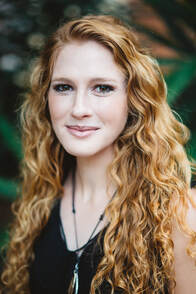 Author Name: Gillian Bronte Adams Author Website: https://gillianbronteadams.com/ Author Facebook: https://www.facebook.com/gillianbronteadams/ Author Instagram: https://www.instagram.com/gillianbronteadams Facebook Readers Group: https://www.facebook.com/groups/1518284355170102 Book DetailsBook Titles: Book 1: Calor Book 2: Lumen Series Title: The Nightingale Trilogy Publisher: Enclave Publishing Back Cover Copy for Calor: What if you could edit memories with a single touch? The world-that-was is gone, lost to everything except living memory . . . but remembering comes at a terrible price. Sixty-two years after the apocalypse, a new society has emerged from the ashes of the old world where highly valued memories are traded and nostalgia is worth dying--and even killing--for. Enslaved by a cruel master, Sephone Winter is forced to use her rare ability to manipulate memories to numb the darkest secrets of the ruling aristocracy. Then Lord Adamo appears, speaking of a powerful relic capable of permanently erasing memories and recovering Sephone's own lost childhood. But not everything about the young lord is as it seems, and soon Sephone must choose between helping Lord Adamo forget his past or journeying deep into the land of Lethe, where the truth about who she really is might finally be revealed . . . and a long desired future restored. The Nightingale Trilogy is a fantasy transformation of Hans Christian Andersen's beloved 1843 tale The Nightingale, with echoes of the myths of Hades and Persephone. One Endorsement: "A fascinating magic system and a captivating dystopian backdrop." —Publishers Weekly Audience: Adults Genre: Post-apocalyptic romantic fantasy Release Date: 6th December, 2022 InterviewBrock: What was your inspiration for writing this series? J.J.: This series was inspired by my work as a clinically-trained psychologist, and also my own experiences of suffering. Between us, over the past ten years, my husband and I have gone through acute illness, chronic illness, cancer, infertility, and more. So I’ve experienced a lot of trauma, both vicariously through my professional work and my own health journey. I found myself wrestling with the question: “If you could erase memories with a touch of your finger, and the pain that goes with them, would you do it, and what might it cost you?” And so Sephone Winter, my heroine, was born. Brock: Wow, that is a powerful drive for writing this story, and crafting a character from your own experiences.Tell us about the main characters. Who are they, and what makes them unique? J.J.: As mentioned, there’s Sephone Winter, who’s a magically gifted being called a mem. She can selectively edit and extract memories, though only temporarily. She’s a slave, used by a cruel master for her gift, but she longs for love and family. Then there’s a young nobleman, Dorian Ashwood or Lord Adamo, who comes to Sephone because he’s heard of a relic that can help mems to permanently delete memories, and he wants to forget the brutal deaths of his wife and child that he witnessed firsthand. They’re joined in their quest by a whole gang of people, including Dorian’s twin bodyguards, a magically touched wolf named Jewel, and a person called a lumen who’s basically a walking lie detector. Brock: That's quite the cast you have assembled. Give us one fact about each main character that no one else knows. J.J.:
Brock: How frequently our characters become real for good of bad, and we begin to like them more as they develop. I had a similar situation with a character of mine named Drex. In three sentences what is this book about? J.J.: The lengths people will go to to forget (or remember) their past. The way that suffering molds us into deeper, wiser people. And the importance of hope and forgiveness. Brock: Do you outline the entire book before starting, or do you write as you go and let the characters take control of the story? J.J.: A little of both, really. I always have an outline before I start, but I like to keep it as loose as possible, to leave room for the characters to yell “Surprise!” when I least expect it. We have a lot more fun that way. Brock: Indeed, and sometimes a lot more added wordcount. How do you believe this story relates to the lives of readers? J.J.: We’ve all dealt with pain and suffering, to some degree. It’s part of living in this fallen world. And we each have memories and experiences we wish we could forget. But I want to encourage readers that while suffering often takes a lot from us, and it might even shift our identities quite radically (I, for one, had to give up my work as a psychologist), God works in the wreckage to bring about the creation of something quite new and amazing…and it’s always to our good. That’s such a profound comfort, especially this side of Heaven. Brock: Good words. He opens doors, and sometimes I find myself hesitating to walk through, yet He's never once failed to bring me into a better new season. What is your favorite genre to write for? J.J.: Always, always, fantasy! I love romantic fantasy, historical fantasy, any kind of fantasy. Brock: Any certain research required for the book, or is it all from your imagination? J.J.: It’s mostly from my imagination, though I did a fair bit of research to give each country in the world of Caldera a particular feel. Memosine, for example, is modeled off the Scottish Highlands and the Isle of Skye. So I watched a LOT of docos on the Isle of Skye to get a feel for the rugged landscape…#noregrets. Brock: Magnificent! Is it difficult to be accurate to a biblical perspective or biblical facts when writing fantasy fiction? J.J.: Oh, absolutely. There’s a fine line between replicating the Bible’s wisdom or events exactly, and being so loose with your themes that the story doesn’t have much spiritual impact at all. I always try to put new spins on things, but to capture the underlying theme or essence of a Biblical concept (e.g., forgiveness). I can’t say I’ve mastered this yet, but with every book I write, I feel like I get stronger in this area. Brock: Writing a story, like anything, is a muscle we continue to strengthen and grwo. Where do you like to write? J.J.: There was a time when I would write anywhere and everywhere, on basically anything (including my own hand), but now I have my own study, I usually just sit at my desk and write at my computer. It’s wonderful to have my own space. I know a lot of writers pen books in cafes, but it’s too noisy an environment for me and I get so distracted people-watching! Brock: Yep, me too, I can not do coffee shops, or public spaces. Way to many distractions for me. Are you a full-time or part-time author/writer? J.J.: Just part-time for now, as I work as a freelance editor. I don’t know if I could write full-time—though I’m a fast writer, my creative energy gets depleted pretty quickly and I have to switch projects to stay focused. I’ve found editing is the perfect complement of writing in this way. And I love spending my days reading books! Best job in the world! Brock: How long does it usually take you to write a single book? J.J.: Haha, it varies. Twelve and a half years for my debut book…I was slow back then. My record is five weeks (my eleventh book, which I just finished). It depends on how much research is required, and how much I’m into the story. Brock: Congrats on eleven books! Describe your feelings when you opened the box and saw the first published copies of your book. J.J.: Absolutely magical. Enclave produces the most gorgeous books, and seeing those hardcovers for the first time…just amazing. Brock: Coke or Pepsi? J.J.: Neither, sorry! Due to health issues, I only drink water, coconut water, and herbal tea. LOTS of tea. Brock: Well, I cut sugar, so I'm on to coffee and stevia myself. Soda makes me cranky. Soft shell or Hard Shell tacos? J.J.: Definitely soft shell. Brock: Favorite place to vacation? J.J.: New Zealand. It’s literally Middle Earth! Brock: I so want to go! Favorite season? J.J.: Used to be autumn, but I love spring more and more. Brock: Do you have a particular drink or food you consume when you write? Like hot chocolate, raspberry tea, cheese balls, animal crackers, etc? J.J.: Usually nuts. And tea. So much tea. I have two tea shelves, and a whole tea drawer. That’s how crazy I am. Brock: Favorite color? J.J.: Used to be red, but at the moment I’m in a strange blue-green phase. So aqua? Brock: What’s your favorite holiday memory? J.J.: Recently—seeing lemurs up close at Australia Zoo in Brisbane. I nearly cried, it was so beautiful! Brock: That sounds very fun and I am sure engaging. Do you have a favorite Bible verse? J.J.: "Deep calls to deep in the roar of your waterfalls; all your waves and breakers have swept over me." - Psalm 42:7 I love that the deep in us is a reflection or echo of the depth of God. Despite our suffering, God asks us to reach out to him…even when we’re being smashed by massive waves. Brock: I've never taken the time to really think about the verse. Thank you for that reflection. Favorite pasta dish? J.J.: Pesto! And ravioli…and cannelloni…you have asked the wrong question :D Brock: Ha ha! Do you listen to music while you write? If so what are some examples? J.J.: Not usually…I get super distracted and my emotions get all jumbled. But I might listen to instrumental music to get me in the mood for a scene--Last of the Mohicans, the Shadow and Bone soundtrack, anything by Ludovico Einaudi. I also LOVE Hans Zimmer. Brock: Last of the Mohicans, absolutely! And Hans Zimmer for sure. I will have to give Shadow and Bone a try, I have loved Lord of the Rings, Chronicles of Narnia, The Village, and depending on what I am writing Jurassic Park! What else do you want readers to know about your books, that I did not cover? J.J.: Nothing I can think of. Thanks for having me—this has been fun! Brock: Let's do it again with your other series. Author Details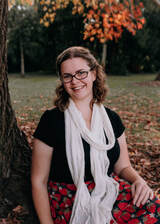 Author Name: J. J. Fischer Author Website: www.jjfischer.com Author Facebook: https://www.facebook.com/jjfischerauthor/?ref=py_c Author Twitter: www.twitter.com/jjfischerauthor Author Instagram: https://www.instagram.com/jjfischerauthor/ Author Pinterest: https://www.pinterest.com.au/jjfischerauthor/ Author Goodreads: https://www.goodreads.com/author/show/20763565.J_J_Fischer Book Details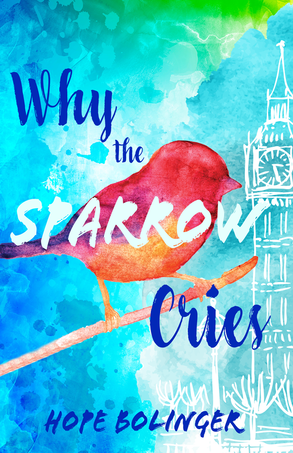 Book Title: Why the Sparrow Cries Series Title: The Sparrow Duology Publisher: Mountain Brook Fire Back Cover Copy: When Harper meets the Greek Dark Age teen, Homer, in the British Museum, she ushers him to her archeologist Uncle’s apartment to avoid the British authorities. And, to figure out a way to get Homer back to his country, Palikari, before they break the space-time continuum or something she’d seen in an episode of Doctor Who. Closed off to human interaction, due to an incident that happened back in Phoenix, that might have to do with her parent’s divorce right before her dad’s coincidental death, Harper finds herself opening up to her new Dark-Age companion. Will she learn to love again? Or will an ex-archeologist turned loose snag the only person she’s felt safe around in years? Audience: Young Adult Genre: YA Time Travel Release Date: February 15, 2024 InterviewBrock: What was your inspiration for writing this book or series? Hope: Great question! It started when I studied abroad in London. As I saw so many artifacts and history, I began to wonder what it would be like if someone from a very obscure period of time came to our modern-age. I decided to pick the most obscure time period I could think of, where even writing didn’t exist. Brock: Very interesting! Brock: Tell us about the main characters. Who are they, and what makes them unique? Hope: Harper is our POV character. She’s autistic, snarky, and prickly—but has a soft spot she doesn’t know about. It happens because of Homer, our love interest. He’s a sweet teen from the Greek Dark Ages who had the misfortune of being a slave in a temple to the god of death. Brock: Sounds like some great and interesting characters to engage with. Brock: Give us one fact about each main character that no one else knows. Hope: Harper doesn’t have the best hand-eye coordination. Homer has a really weird running form. It’s like a frog. Neither one would be the best to recruit for sports. Brock: Ha ha! So neither for early Greek games. Brock: In three sentences what is this book about? Hope: A neurodivergent girl finds a teen from the Greek Dark Ages. It’s up to her to bar him from a tomb robber. And try not to fall in love in the process. Brock: Do you outline the entire book before starting, or do you write as you go and let the characters take control of the story? Hope: Most of the time I am an outliner. I will say, this was the very first book I ever pantsed. Brock: I love that, I have found myself taking on different styles or writing for different books, based on the need. Sometimes I am so into the characters that I can't help but let them take me on side journeys. Brock: How do you believe this story relates to the lives of readers? Hope: The story is about opening ourselves up to being vulnerable. Harper and Homer have seriously traumatic pasts, but they’re able to find healing through listening to one another. Brock: Being vulnerable, that can be a challenge for anyone. Brock: What is your favorite genre to write for? Hope: I don’t think I can pick one. I do have a really soft spot for middle grade. Brock: My personal favorite zone. Brock: How many books are planned for this series? Hope:There are two books! The second one will take place in Homer’s time period, and it releases in June. Brock: Any certain research required for the book, or is it all from your imagination? Hope: For book two, it took four years of research. I think I would cry if I calculated all the hours. Brock: WOW! That is a labor of love. Brock: Can you give us a hint at the next book in the duology? Hope: Without spoiling much, let’s just say that it pays huge homage to The Iliad and the Odyssey. Brock: Are you a full-time or part-time author? Hope: I so wish this could be full-time, but I’m a write-when-there’s-a-gap-in-the-workday writer. The full-time job pays the bills for now. Brock: I get that, I search for windows of time in the evening and the weekend. Brock: In what ways does your faith impact how you approach writing? Hope: I think it’s a good reminder that God is having me do this for a reason. Publishing is tough, cutthroat, and often thankless. But I know he called me to this for a reason, and that’s why I continue to write. Brock: Coke or Pepsi? Hope: Coke, hands down. Especially with lime. Brock: Nice touch with the lime! Brock: Favorite season? Hope: I’m a fall girlie. Brock: I'd fall into the autumn category as well! Grew up in the midwest with colorful leaves and harvest in the fields! Brock: Favorite color? Hope: It’s somewhere between blue and purple, but I haven’t found it yet. Brock: You had indicated in some of your social media posts that it was quite the journey to get this book contracted, can you tell me more about that? Hope: Great question! It really did. I wrote this book 6 years ago. It was contracted twice, by publishers who ended up going under due to the pandemic. It received almost 40 rejection, one that explicitly said, “It’s perfect. There’s nothing wrong with it. We’re still not contracting it.” I got so much conflicting feedback. But I am so grateful it found a forever home. Brock: That really is challenging, so grateful you found a home for the book! Brock: Anything else we should be watching out for? Hope: I should have my 20th title published later this year. It’s been a wild journey since the first book contract in 2019. A lot of ups and downs, and I’m currently in a down. So I am excited to see my journey go upwards again. Any encouragement from readers takes me a really long way. Brock: Indeed, emails, comments, reviews truly fuel my fire to keep writing! Sometimes we just need a little kindling to get that fire really burning! Author Details
With sweet, rhyming text and whimsical illustrations, My Tender Heart Bible features beloved and classic Bible stories for beginner readers. Bestselling author Laura Sassi pairs simple yet creative paraphrasing of Old and New Testament re-tellings with a “Heart Moment” for families to read aloud and pray. Scripture references are noted with each story that tell of God’s redemption plan for even more exploration together! The title says it all! My Tender Heart Bible is a sweet Bible storybook, just right for little hands and little hearts. Written in rhyming verse and paired with adorable illustrations, this collection of favorite Bible stories will help young children learn about people and events from the Bible, while reminding them of God's unconditional love. I need this book for my grandkids. - Crystal Bowman---award-winning, bestselling author of more than 100 books for children including, Our Daily Bread for Kids Book Title: MY TENDER HEART BIBLE Series Title: My Tender Heart Publisher: Paraclete Press Audience: 0 - 6 Genre: Rhyming Bible Story Book Release Date: February 7, 2023 Q&A with LauraBrock: How did you come up with the idea for this book or series? or What was your inspiration for writing this book or series? Laura: MY TENDER HEART BIBLE is a collection of 12 of my favorite Bible stories, creatively rendered in rhyme with a simple prayer “heart moment” for each. The collection is inspired by memories of snuggling up with my own children when they were tiny to read or re-tell (in my own words so they could understand) so they could grasp just how much God loved them. This project is something I’ve dreamed of doing ever since my kids were little and I feel so blessed that it has come to pass! Brock: Tell us about the main characters. Who are they, and what makes them unique? Laura: God and His amazing redemptive love provide the overarching framework for this collection. Each story that I’ve included has been carefully chosen to demonstrate that our God keeps His promises and provides for us in amazing ways. Even when we stumble or fall, He loves us and has provided a way back to Him through Jesus’s atoning death and resurrection. Brock: In three words what is this book about? Laura: God’s great love! Brock: Do you outline the entire book before starting, or do you write as you go and let the characters take control of the story? Laura: It depends on the book, but yes, for MY TENDER HEART BIBLE, I plotted out ahead of time which stories I wanted to include. I knew that I wanted six stories from the Old Testament and six from the New Testament. I also wanted the stories, each in their own way, to point to Jesus and how God’s plan for restoring us to Him is fulfilled in Jesus Christ. On top of that, I also thought it was important to choose stories that would be engaging for littlest ones. Brock: How do you believe this story relates to the lives of readers? Laura: It is my hope that when reading these stories, little ones will feel like they witnessing right along with Moses and Esther and Jesus’s followers that God keeps His promises, that He loves us and that He wants us to be in relationship with Him. Brock: What is your favorite genre to write for? Laura: Not really a genre, but I love writing books and poems that point little ones and their families to God. These can take the form of character driven stories like LOVE IS KIND or imaginative renderings of Bible favorites like GOODNIGHT ARK or GOODNIGHT MANGER, to Bible story collections like my newest book MY TENDER HEART BIBLE. And I love writing in rhyme. Brock: How many books are planned for this series? Laura: I’m excited to share that MY TENDER HEART BIBLE is the first in a three book series of MY TENDER HEART books. The second book, MY TENDER HEART PRAYER BOOK will release this coming Fall and MY TENDER HEART DEVOTIONS is expected to release in Fall 2024. Brock: Are you working on the next book in the series? Laura: The second book in the series, MY TENDER HEART PRAYER BOOK is already in production. That book is a collection of 24 fun rhyming prayers designed to take a child through the day and foster conversations with God. Brock: Can you give us a hint at the next book in the series? Laura: I’m still working on the third and can’t say too much yet, except that this one will be a collection of 50 illustrated devotionals for littlest ones to read with their caregivers. Brock: How do you hope parents will use this book with their kids? Laura: It is my hope that this will become a bedside table favorite, to be picked up and enjoyed by little ones and their families again and again as they ponder together God’s great love for them. Brock: What do you hope kids take away from this book or series? Laura: God is real. He keeps His promises and loves them very much. That’s why He sent Jesus. Jesus loves them wants them to be in daily communion/fellowship with Him. Brock: Where do you like to write? Laura: My favorite place to write to write in the summer is on my front porch. The other three seasons, I move around my house, settling in various cozy reading/ writing spots including my dining room, my living room, and I’m just now in the process of converting a guest bedroom into a “she-shed”. LOL. Brock: In what ways does your faith impact how you approach writing? Laura: My faith is foundational to my writing. It sets the course of what I write and why - to point others to God! LIGHTNING ROUND Brock: Coke or Pepsi? Laura: Neither. I’m a freshly-steeped hot cup of tea person. Brock: Soft shell or Hard Shell tacos? Laura: Hard, of course, and topped with all the fixings including guacamole. Brock: Favorite place to vacation? Laura: I love spending time at the beach each summer. Brock: Favorite season? Laura: I think each season is special in its own way, but maybe summer because that’s when I get to spend mornings writing on my beloved porch. Brock: Do you have a favorite Bible verse? Laura: I love Deuteronomy 6: 5-7 because it’s a wonderful reminder of just how central God and His Word are to be in our lives. Brock: Favorite pasta dish? Laura: Pasta primavera. Author Name: Laura Sassi
|
Follow meArchives
May 2024
Categories
All
|
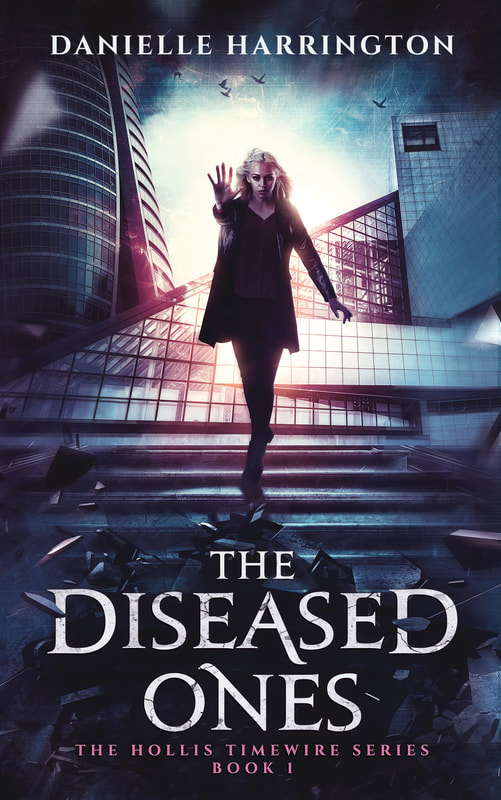
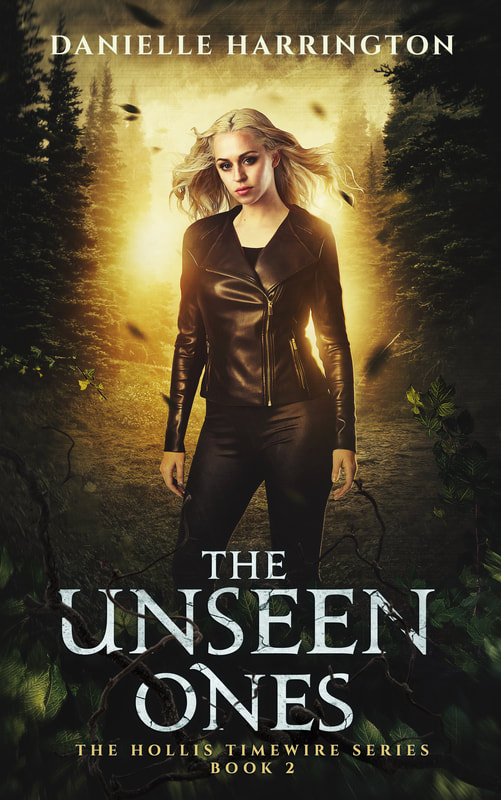
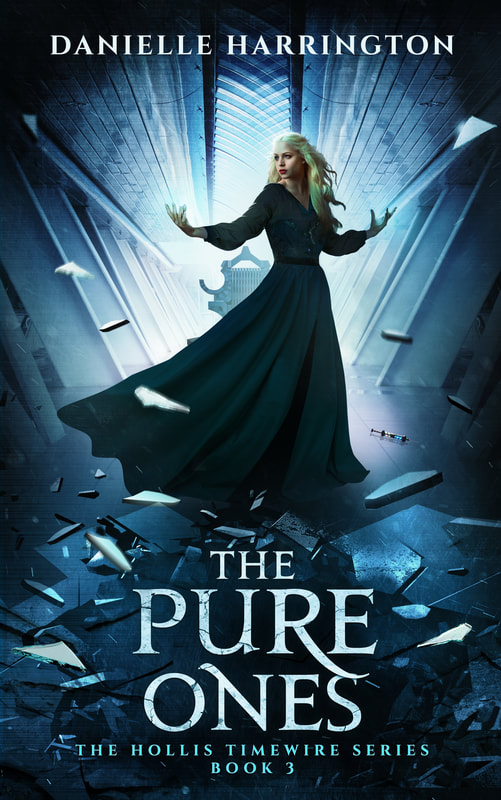
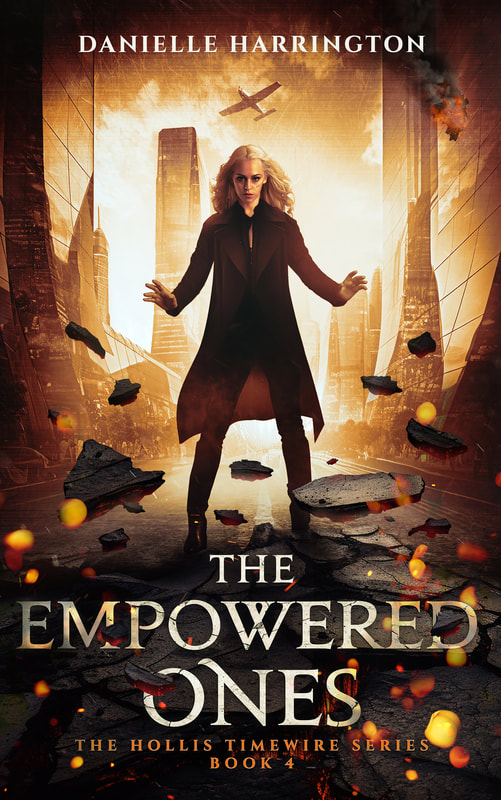
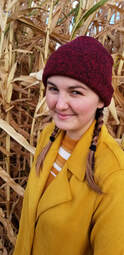
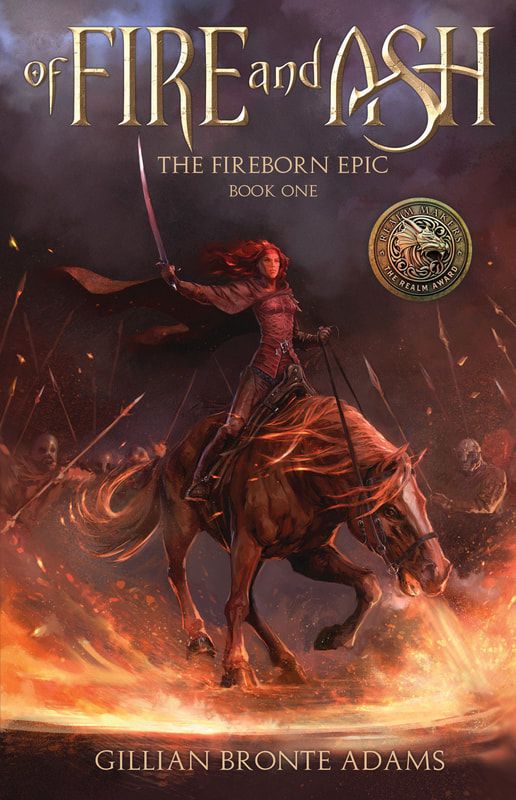
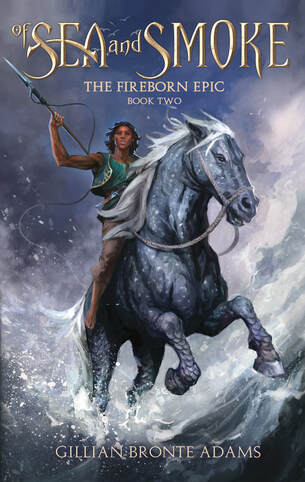
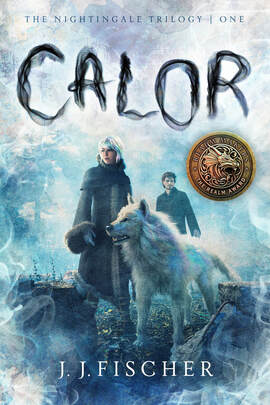
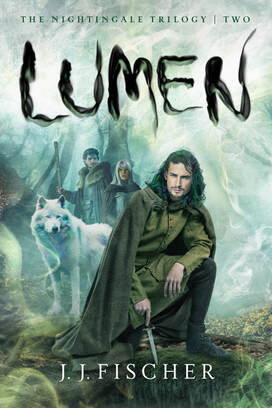
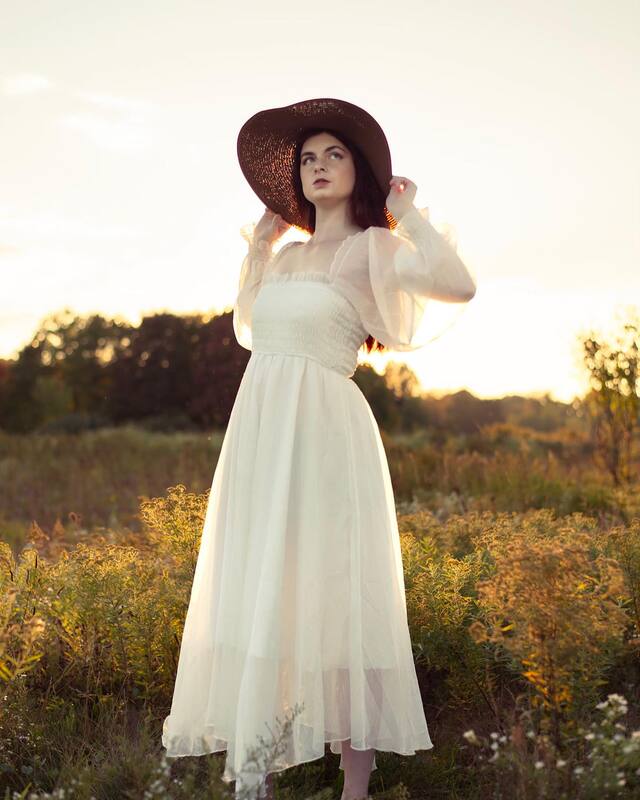
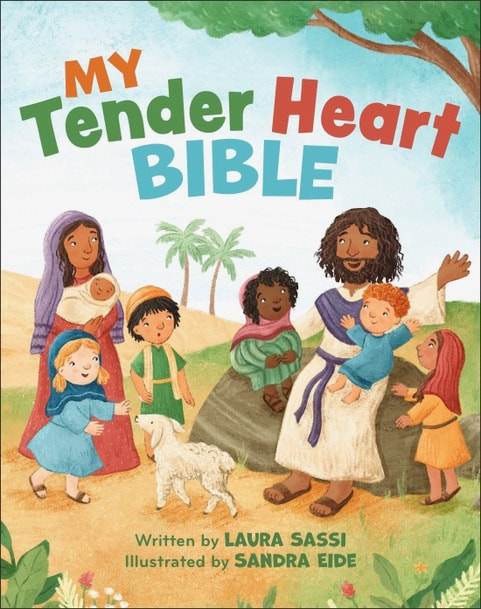
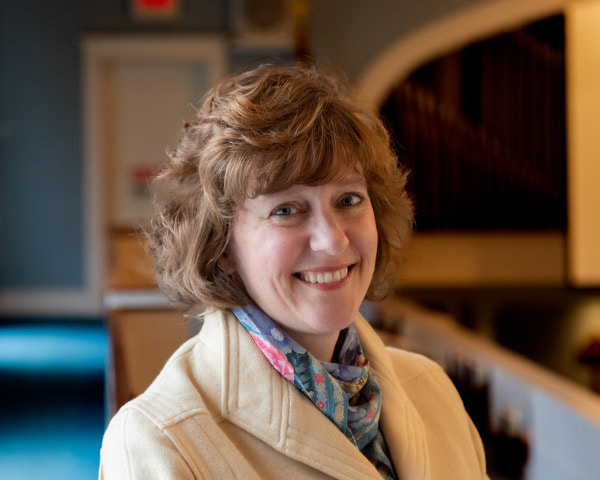
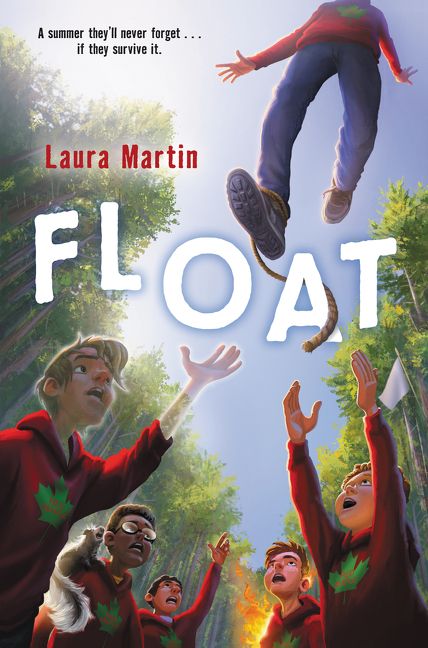
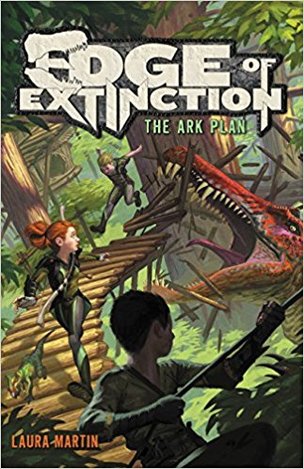
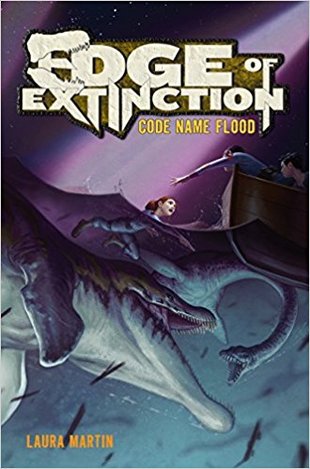
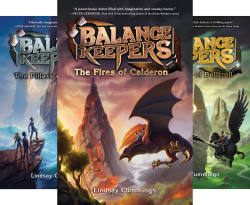
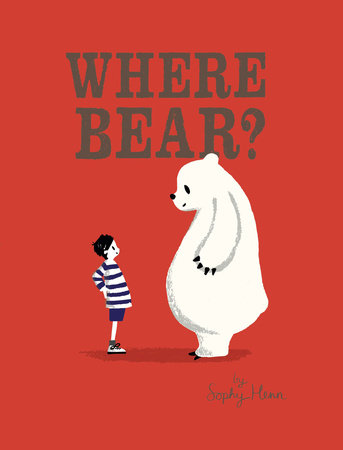
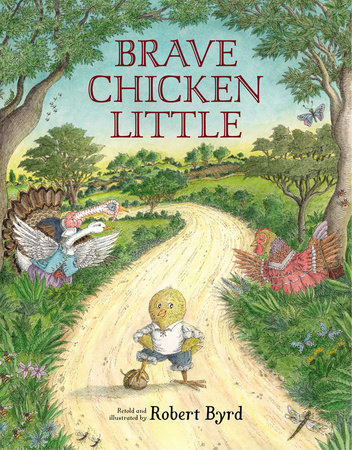
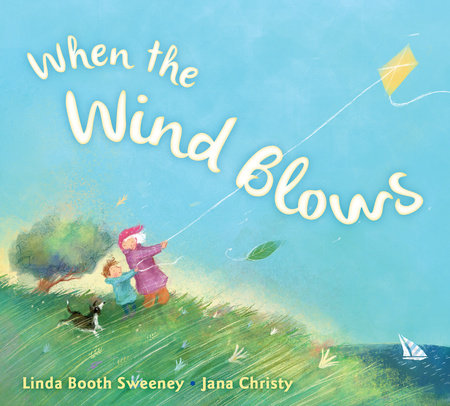
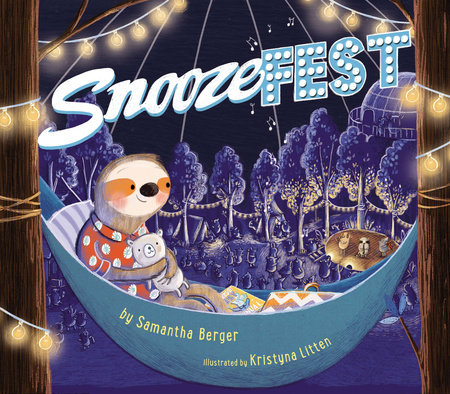
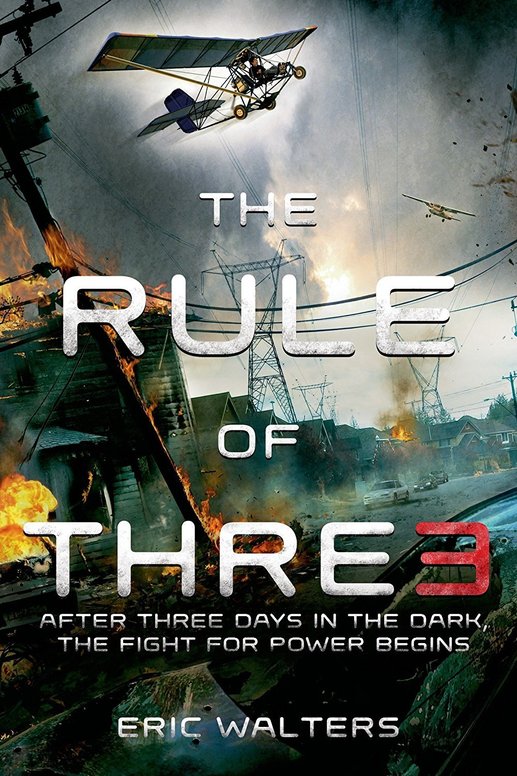
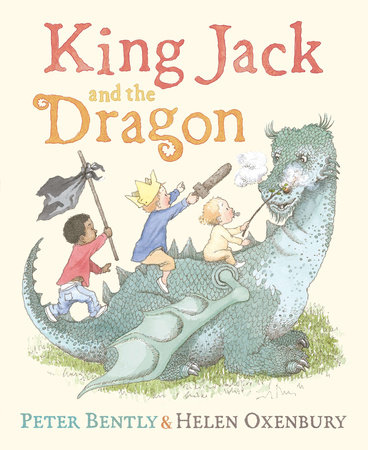
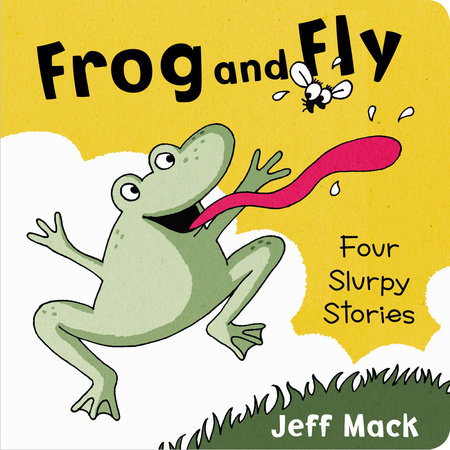
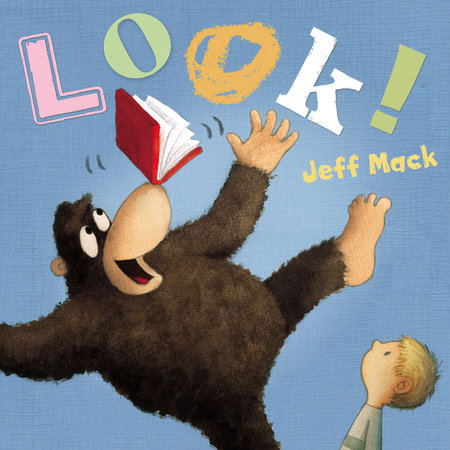
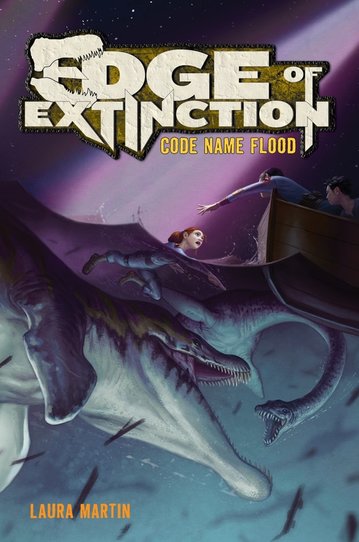
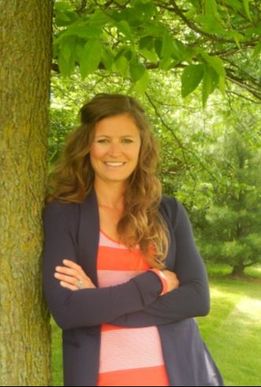
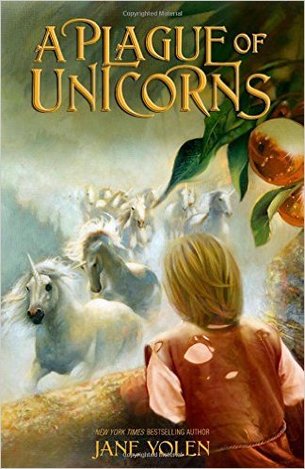
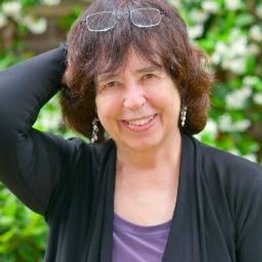
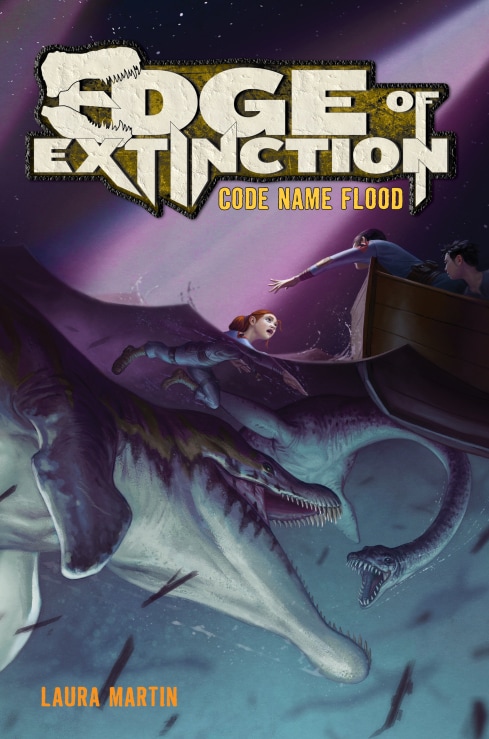
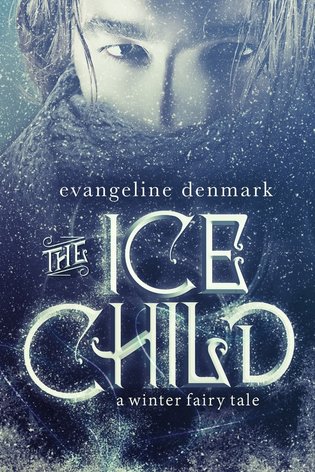
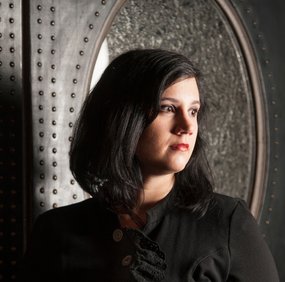
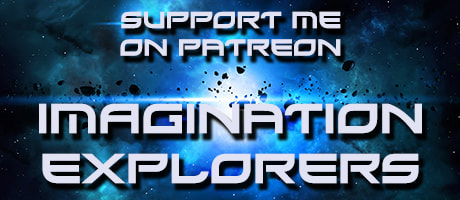
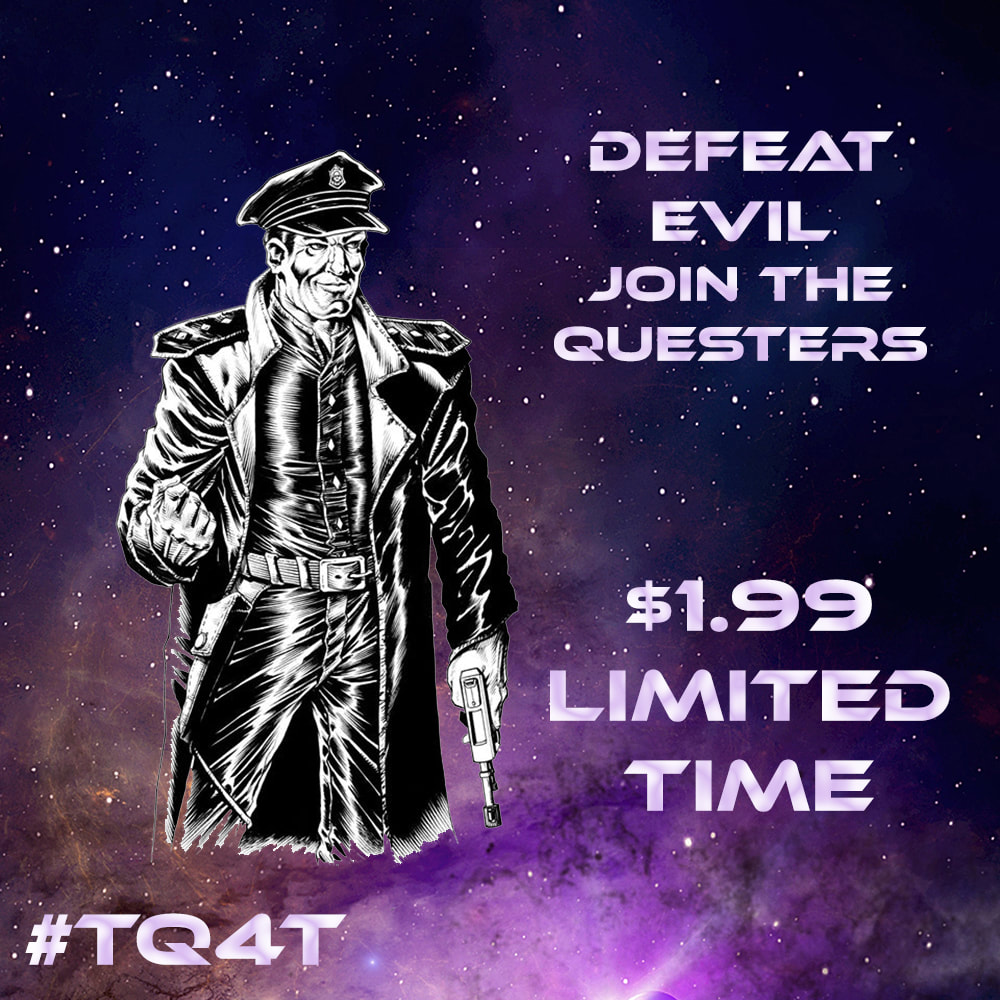
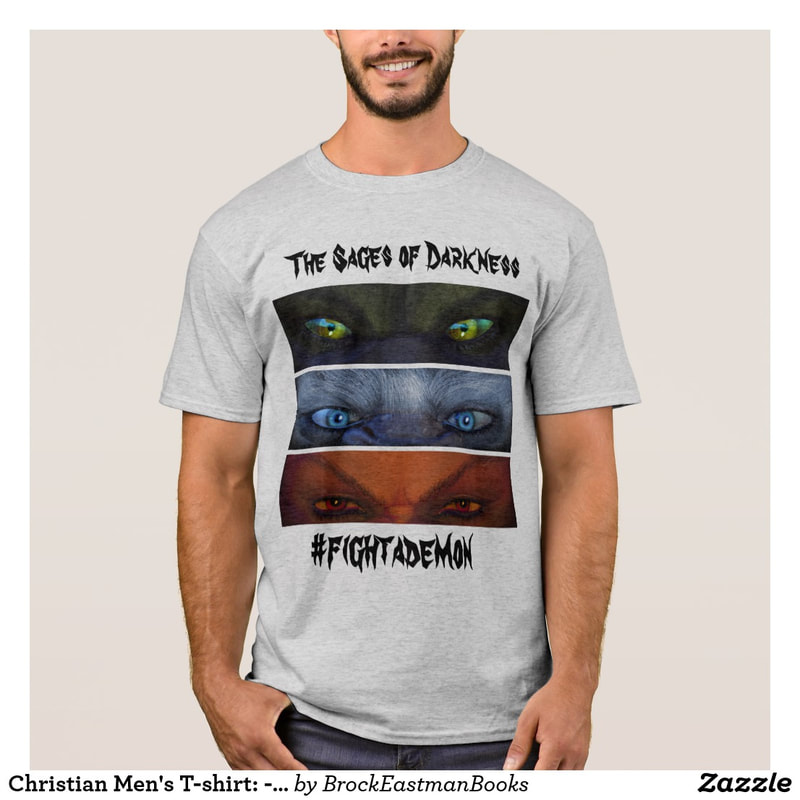

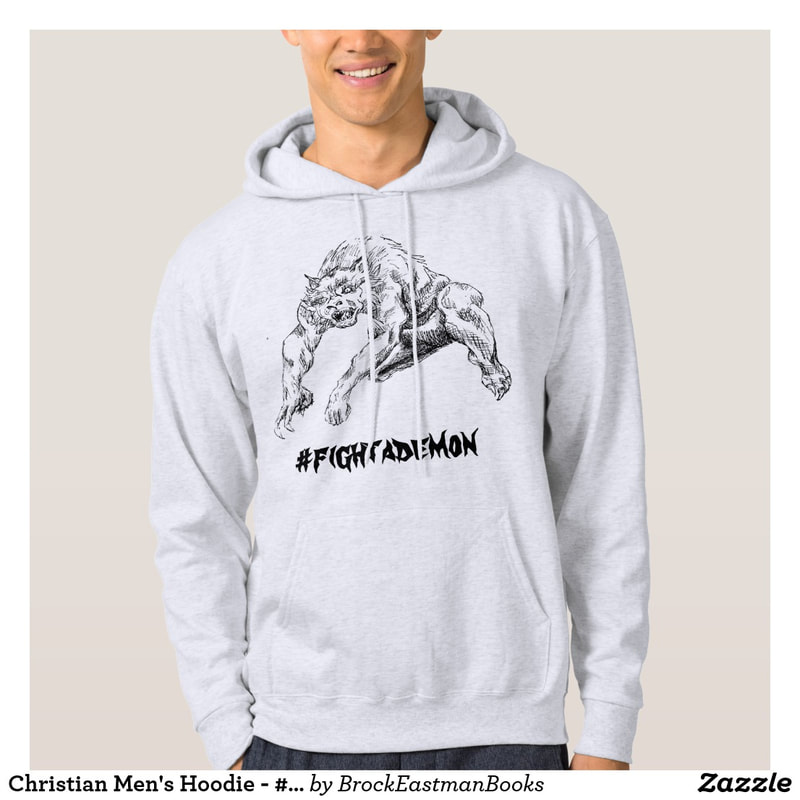

 RSS Feed
RSS Feed